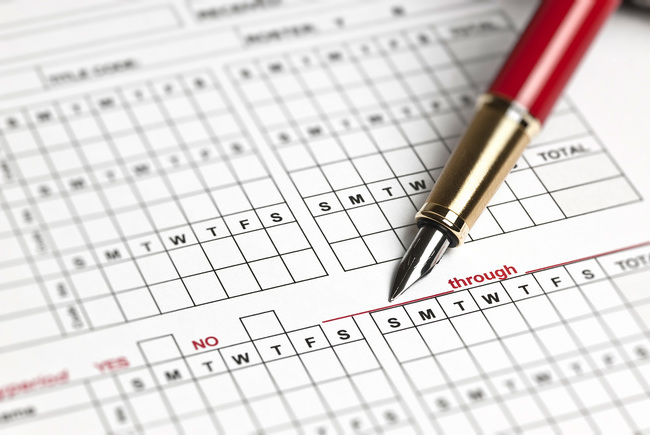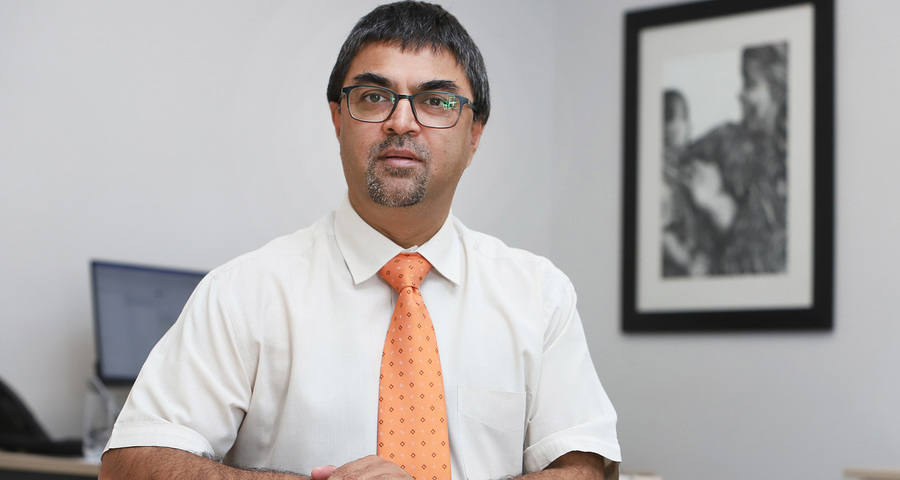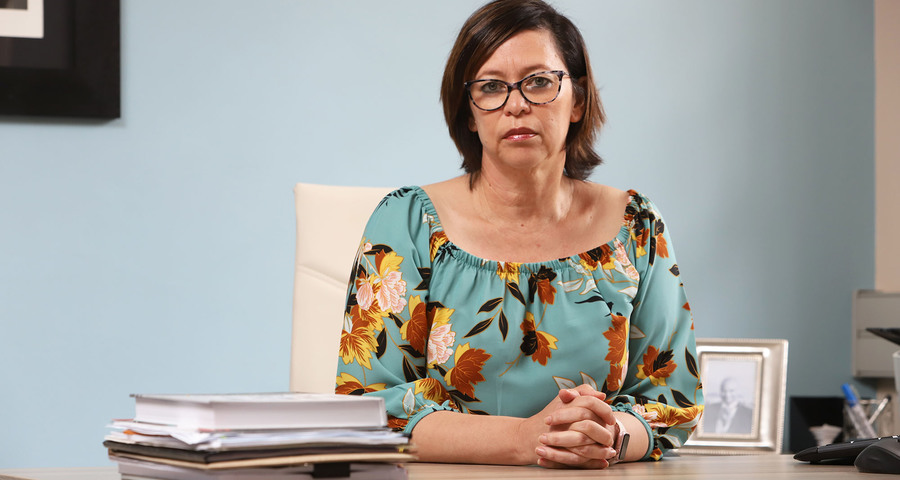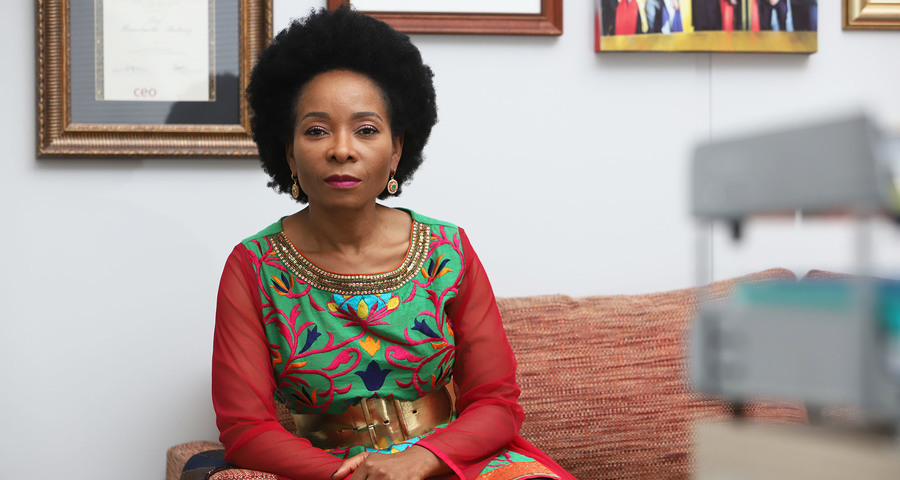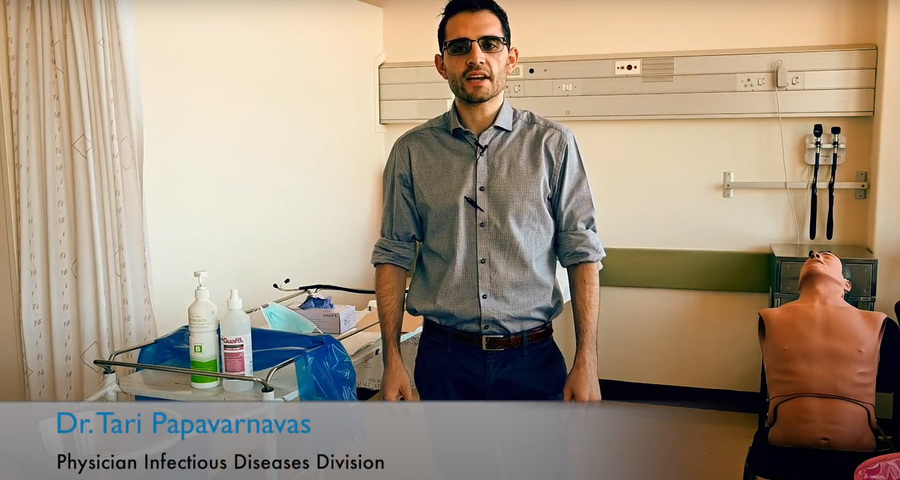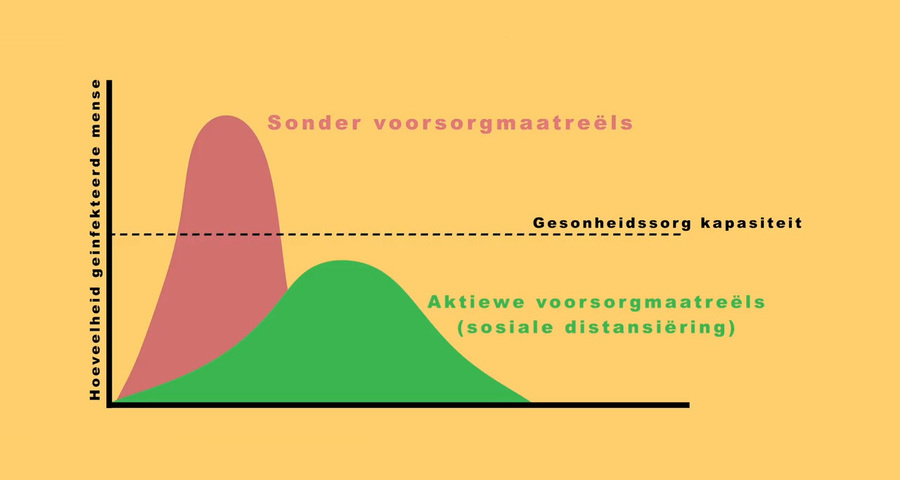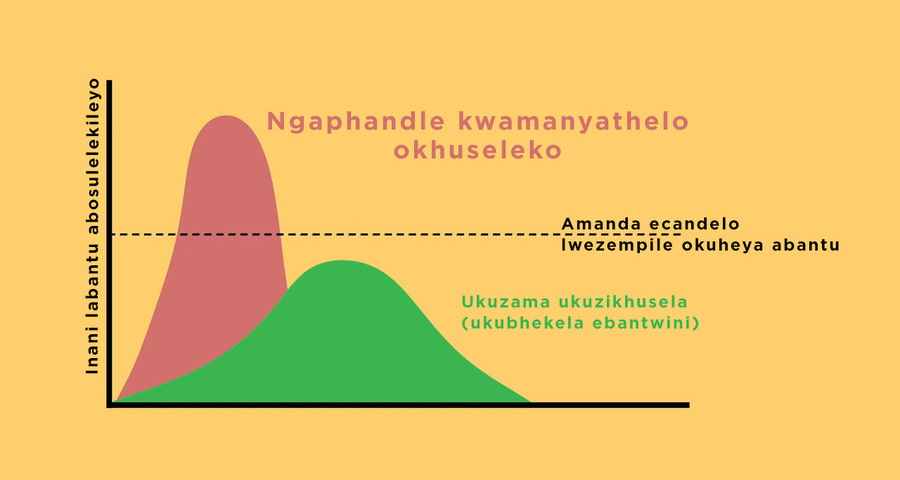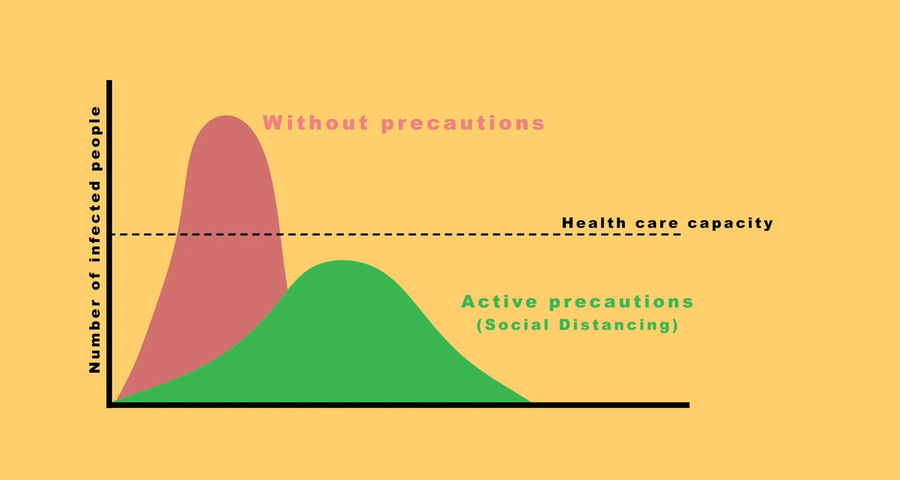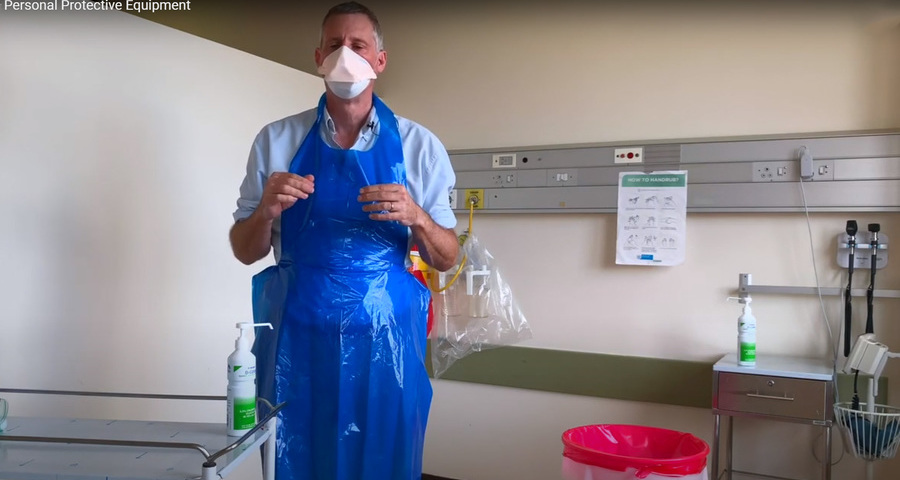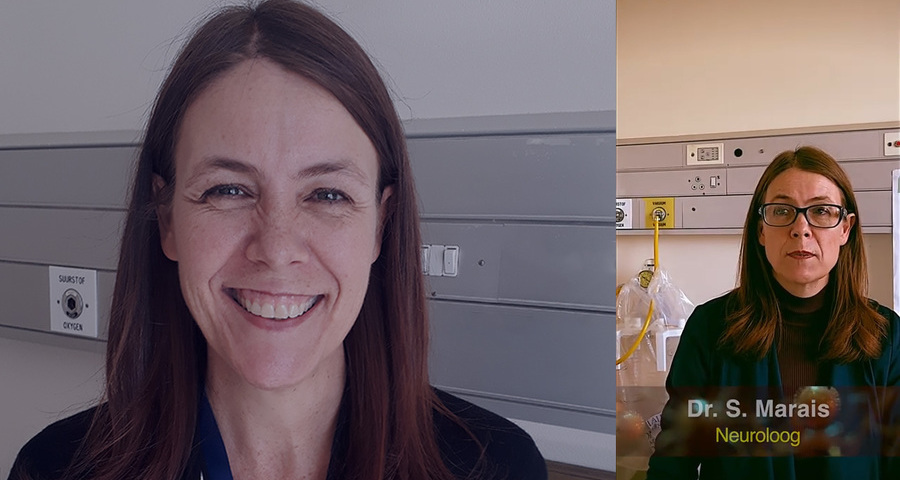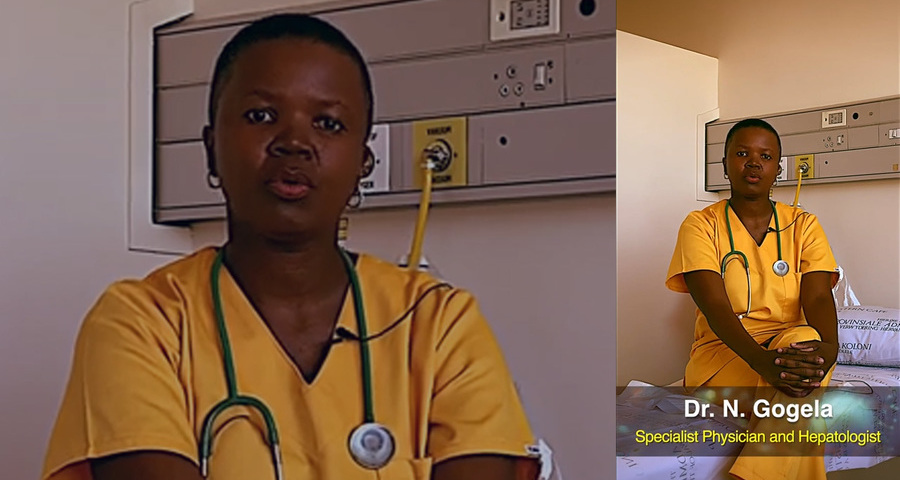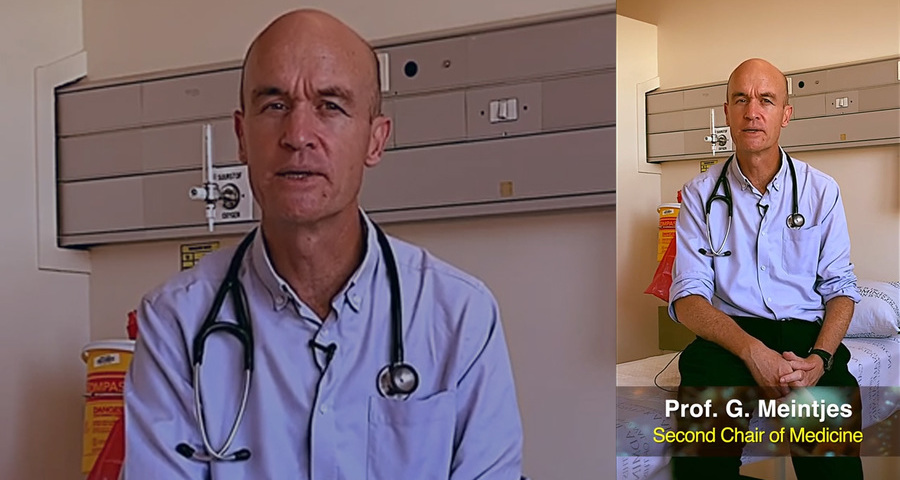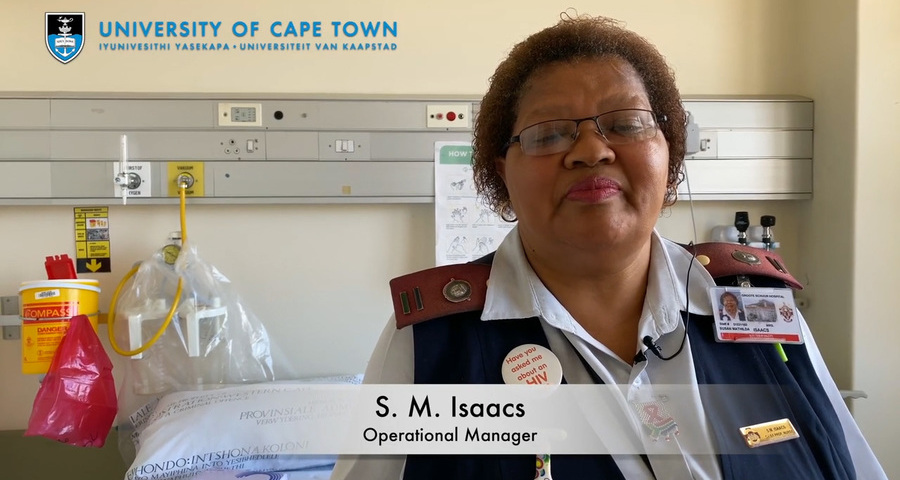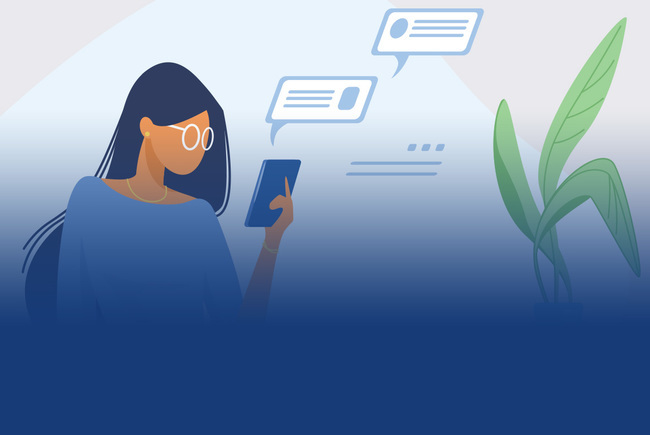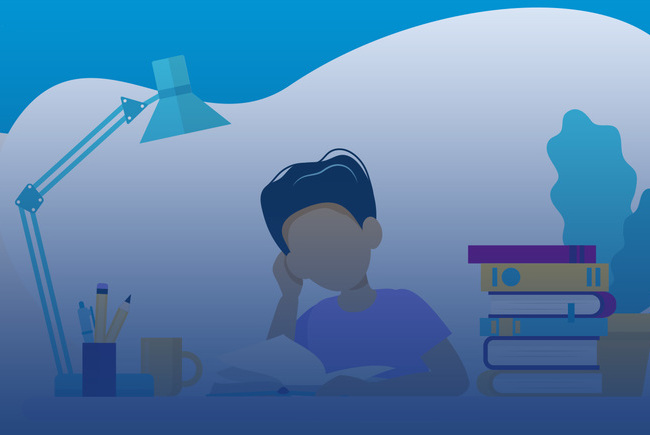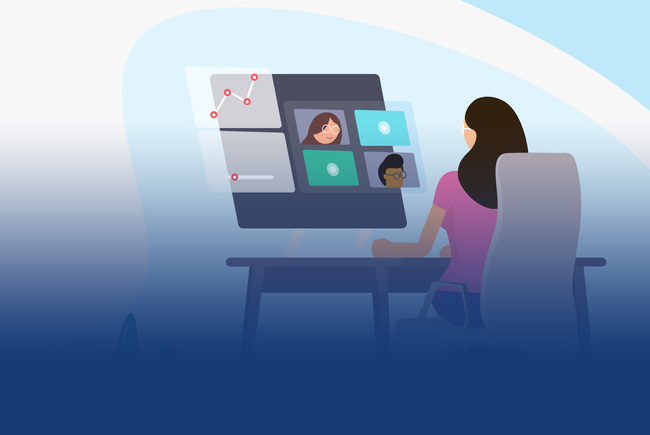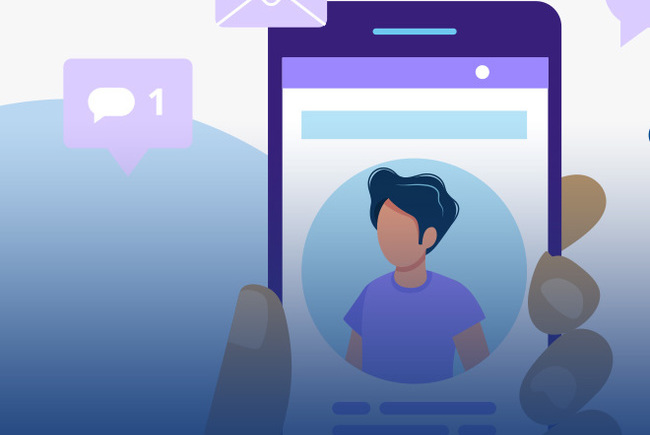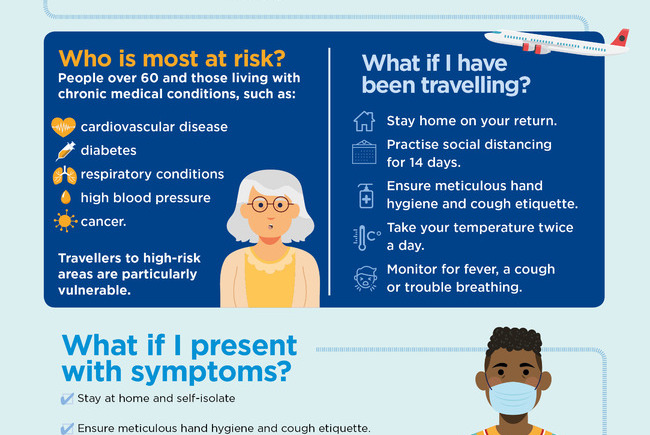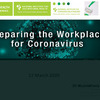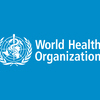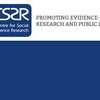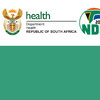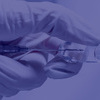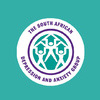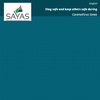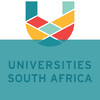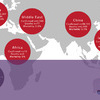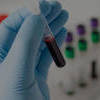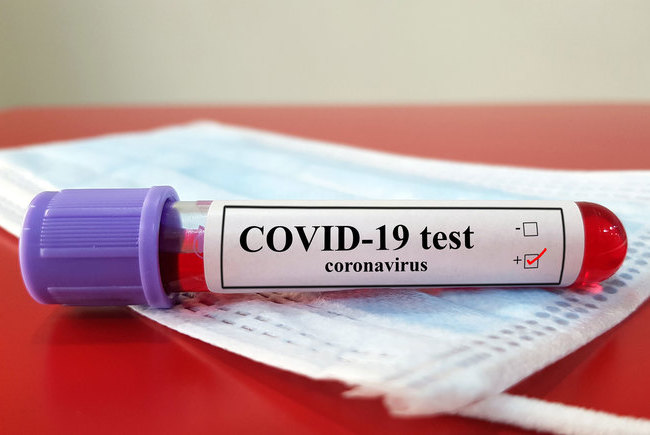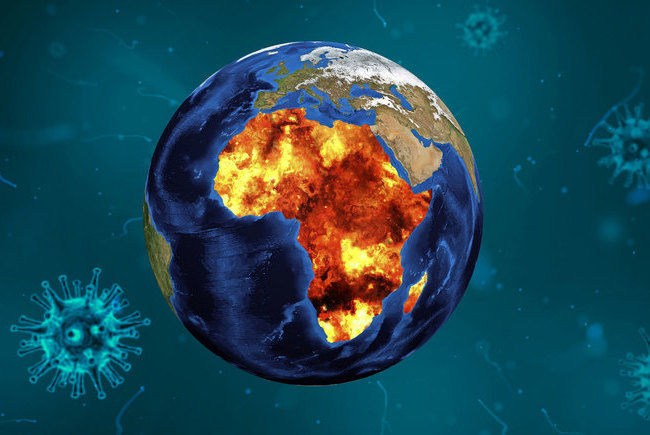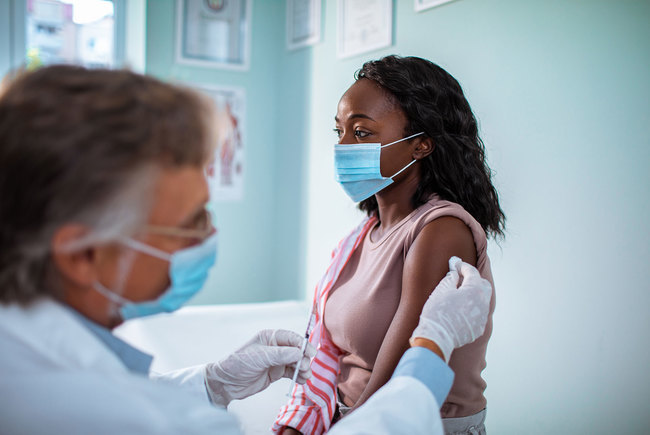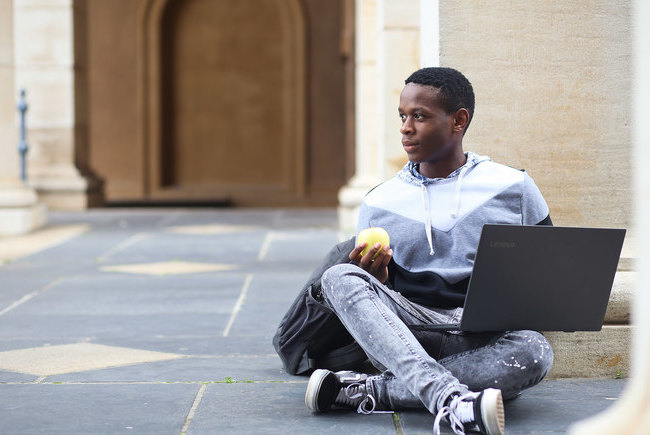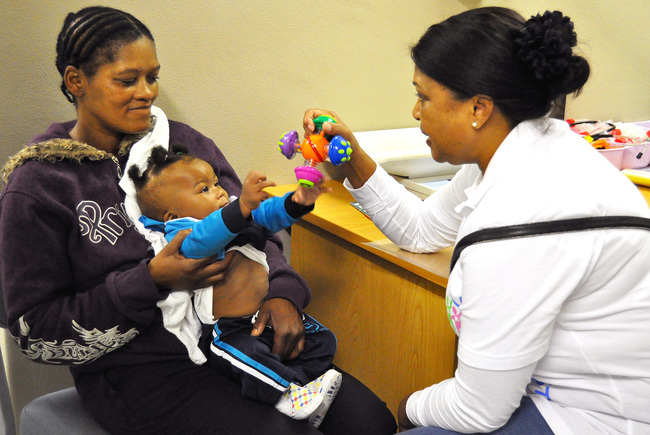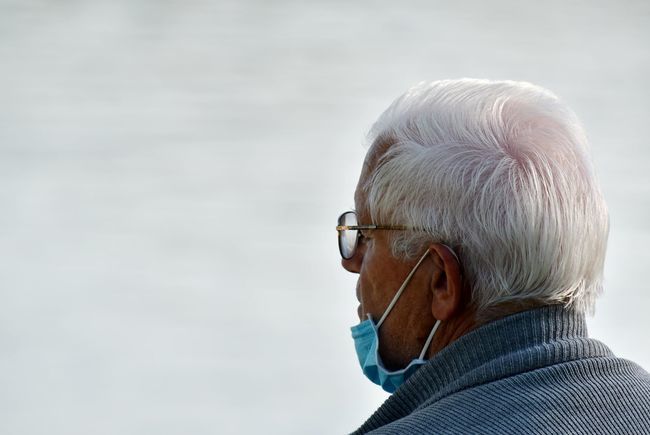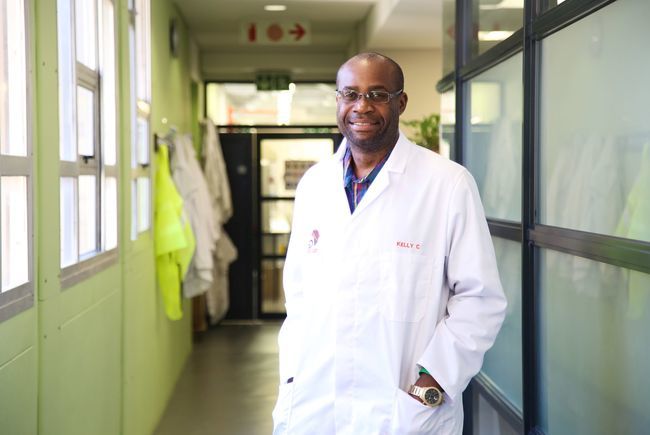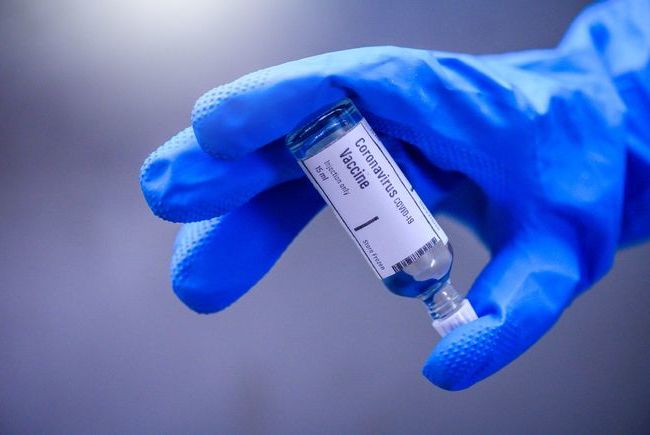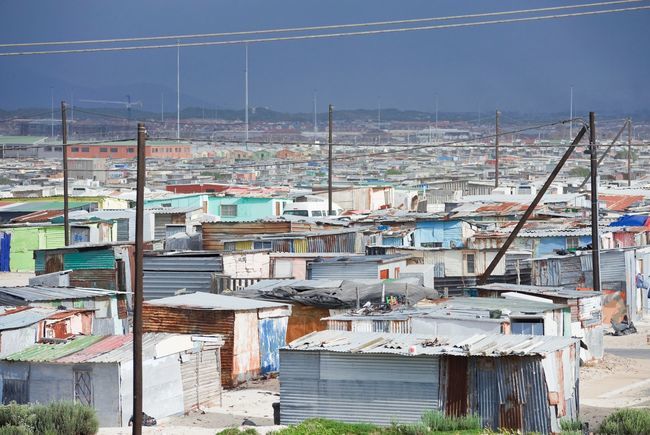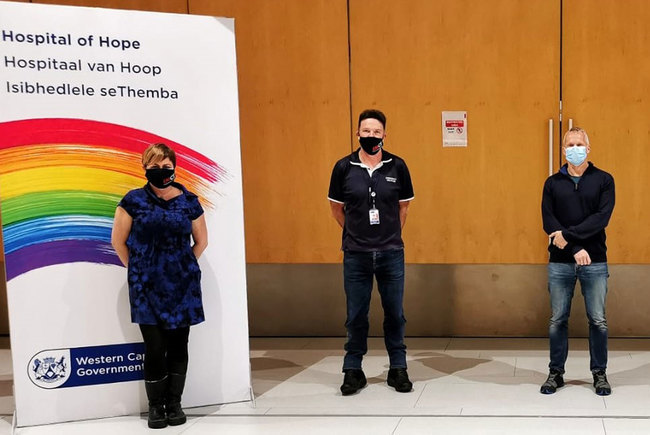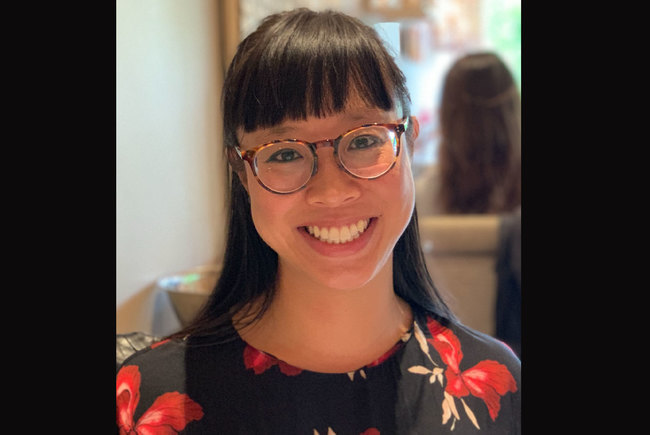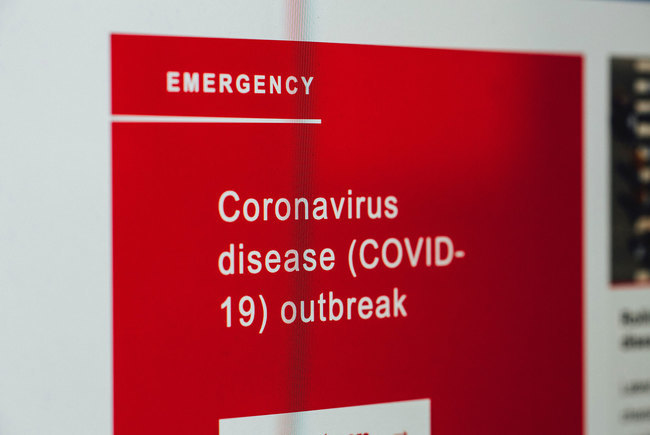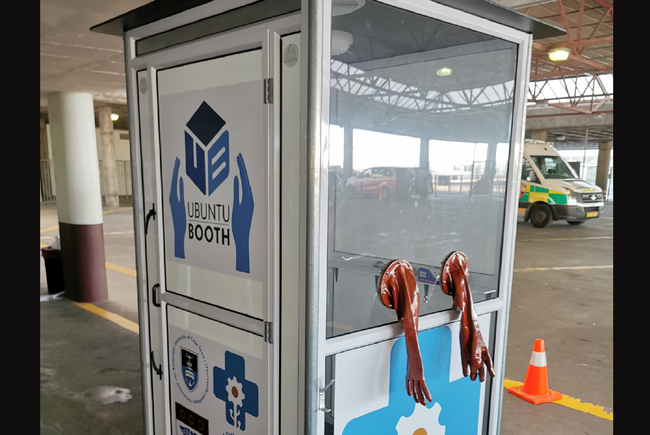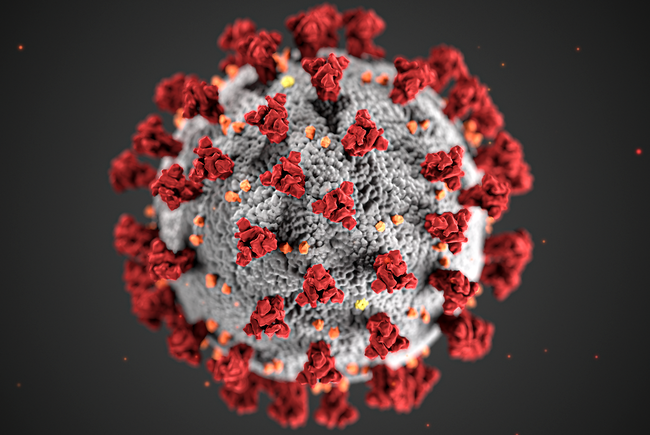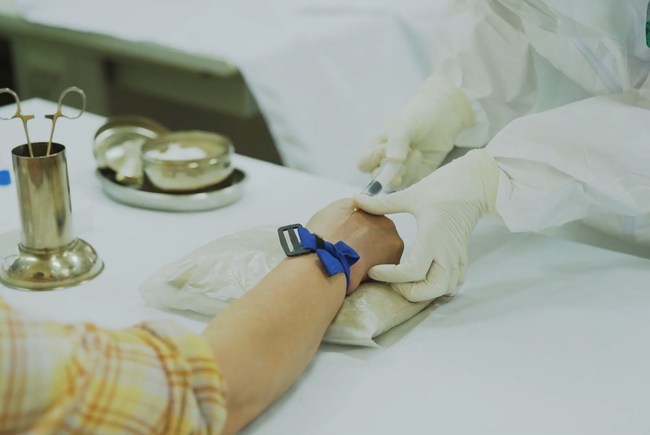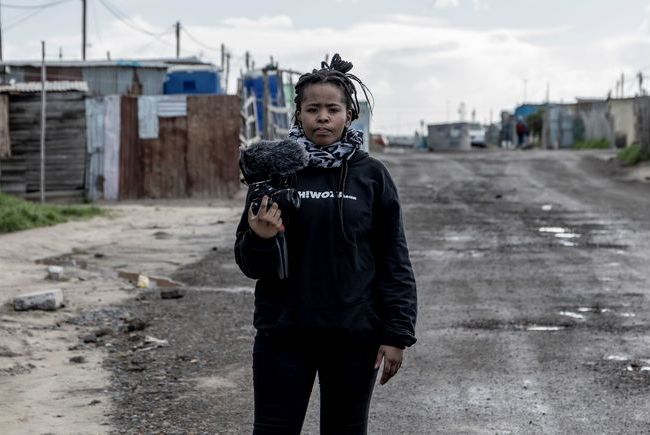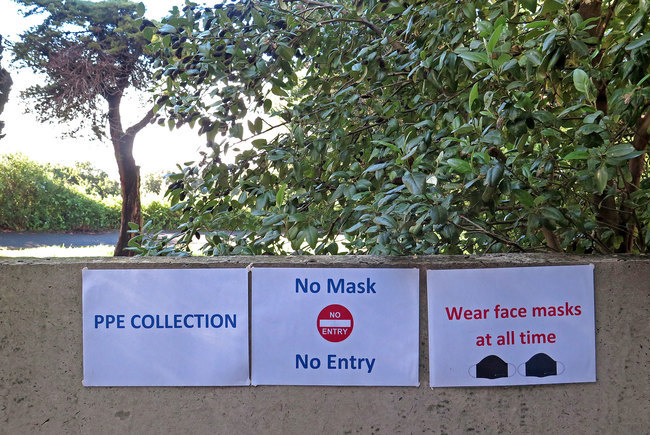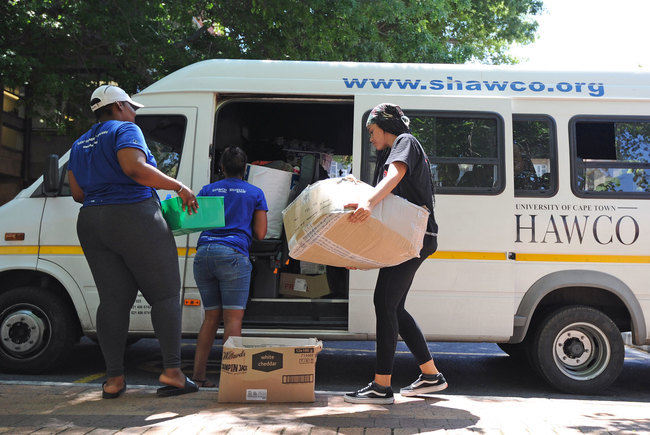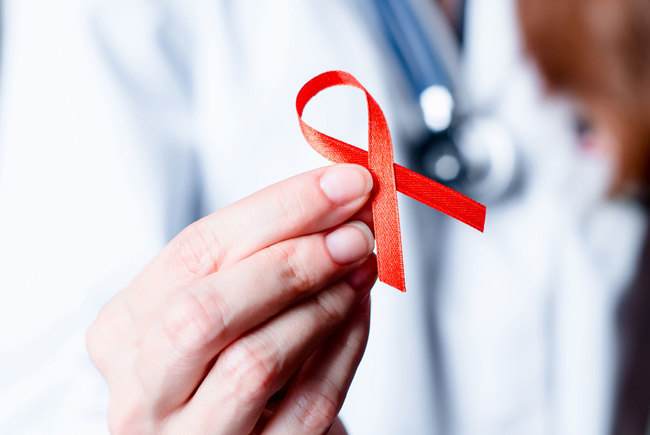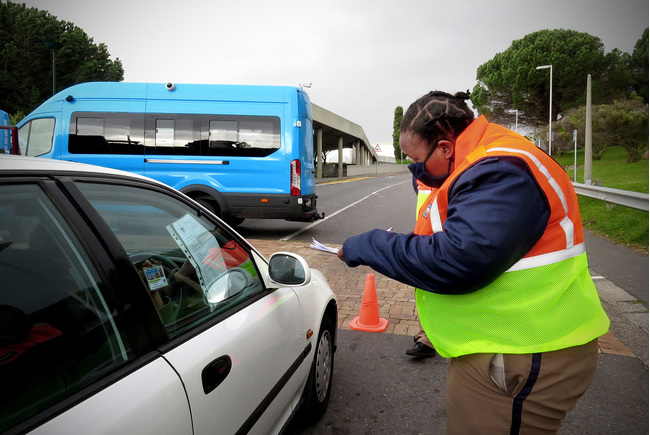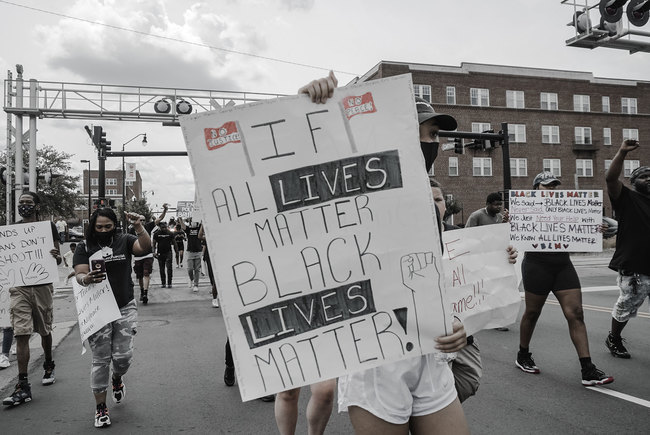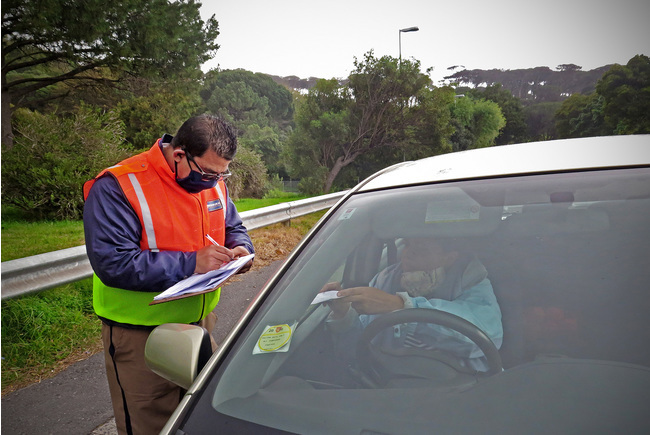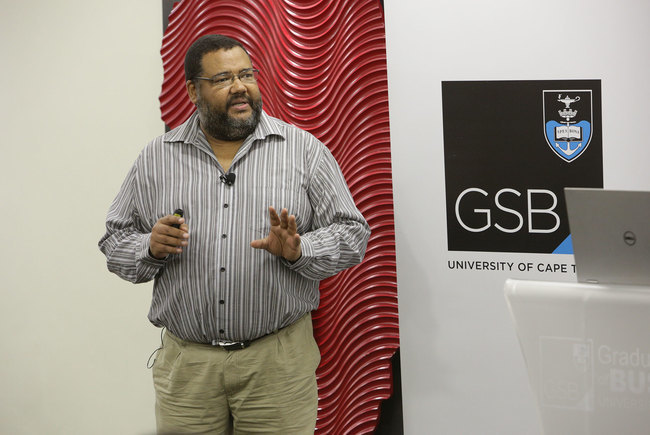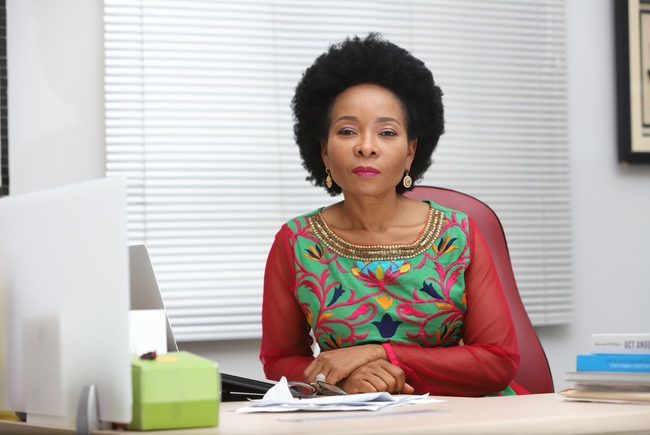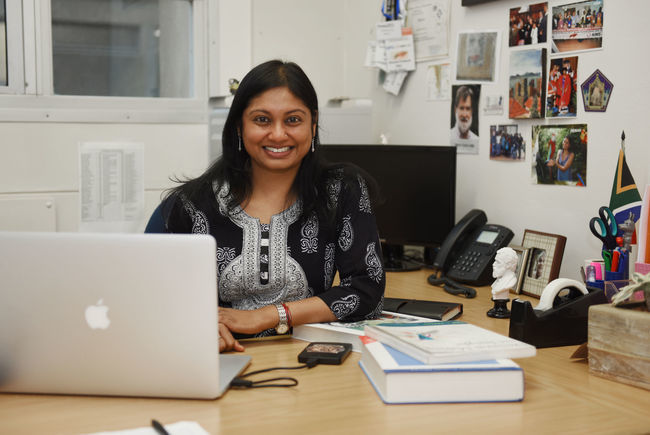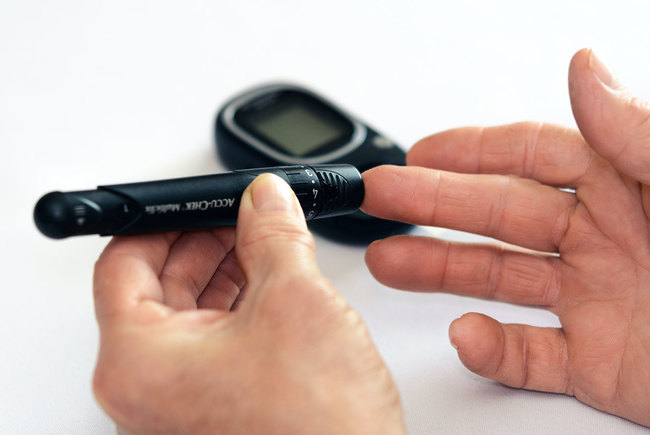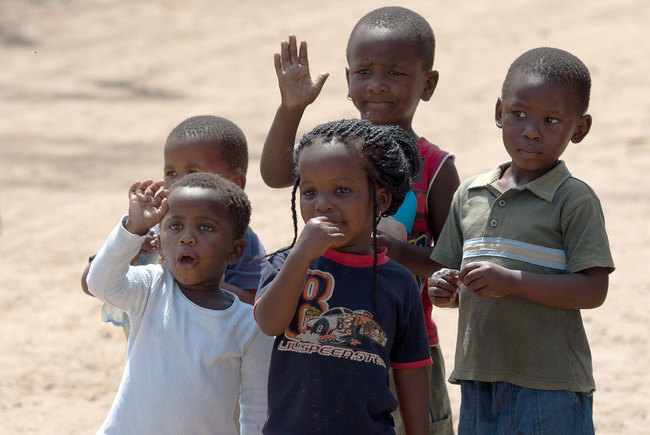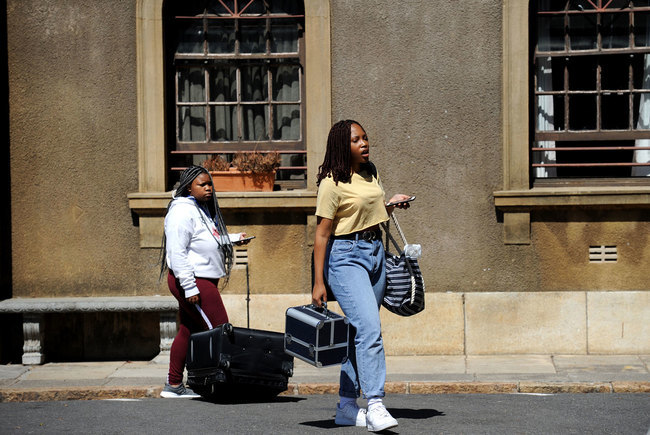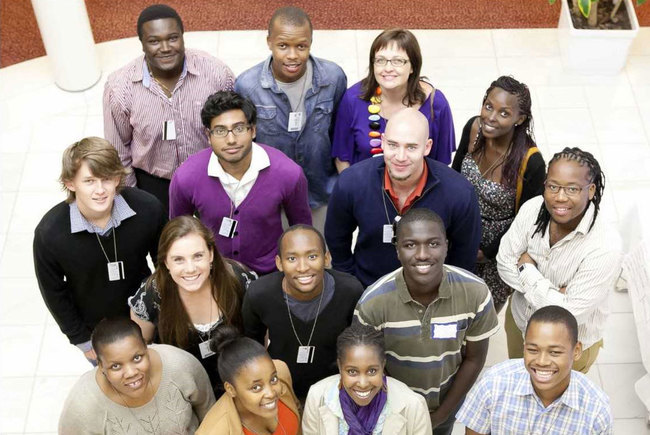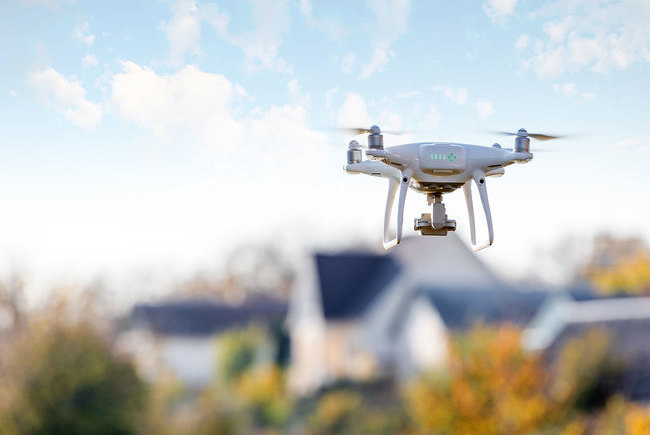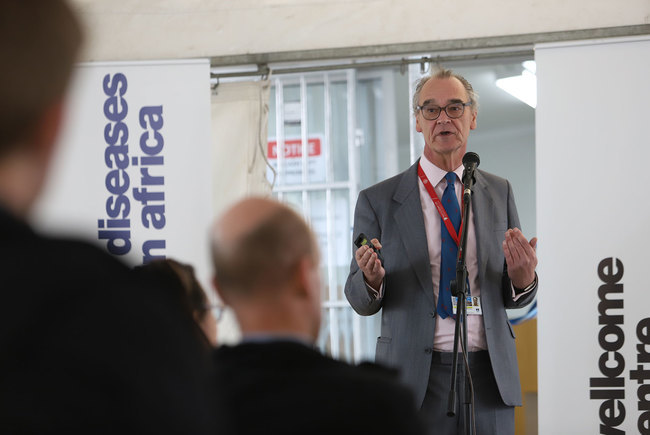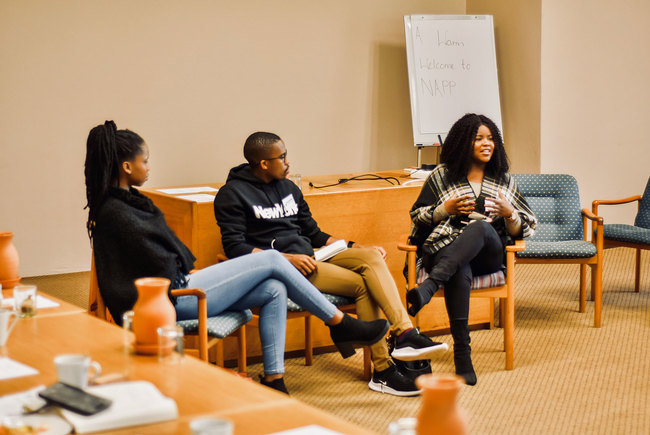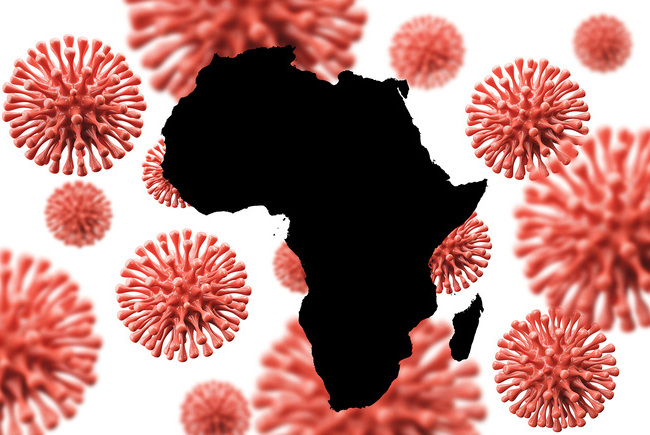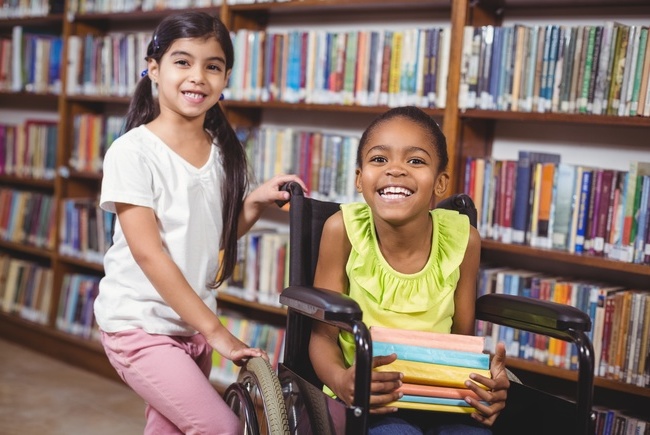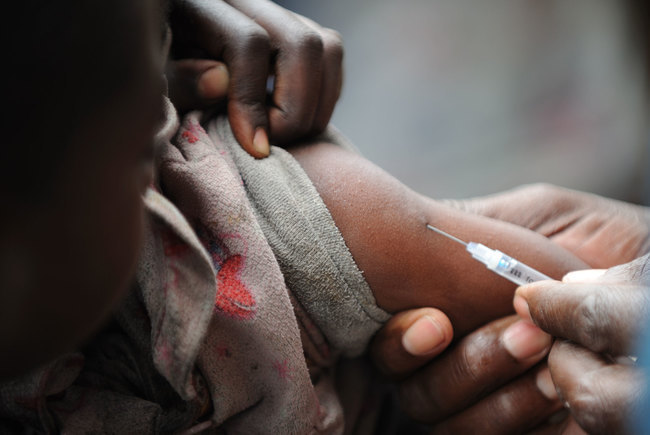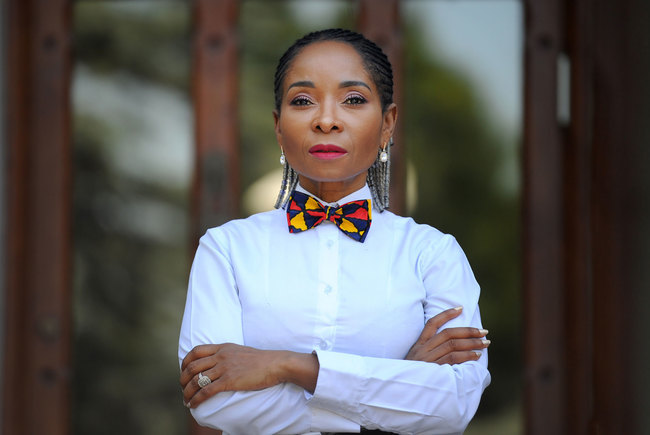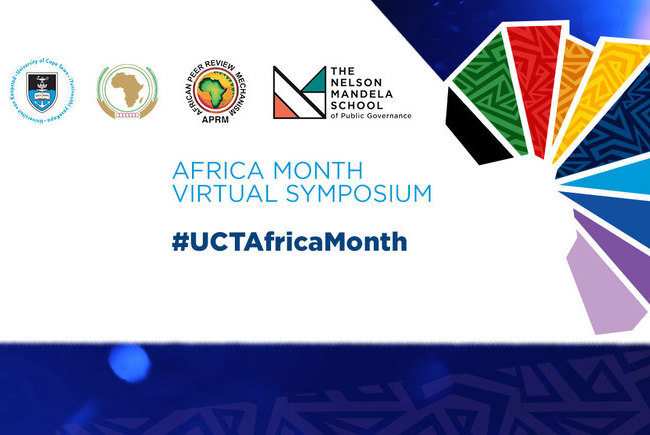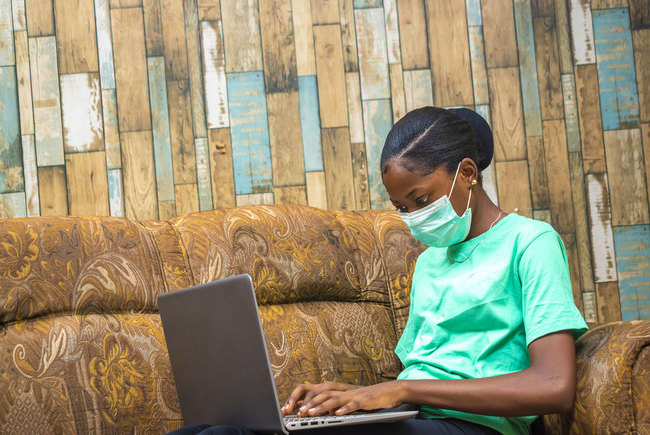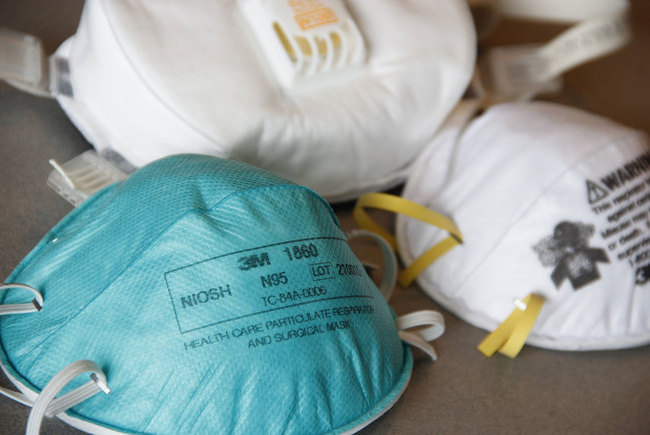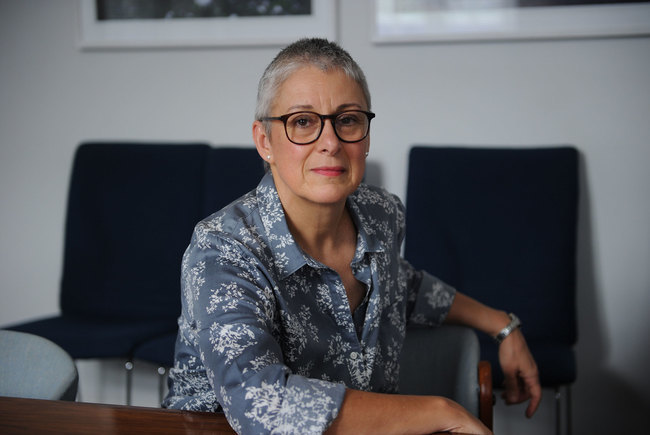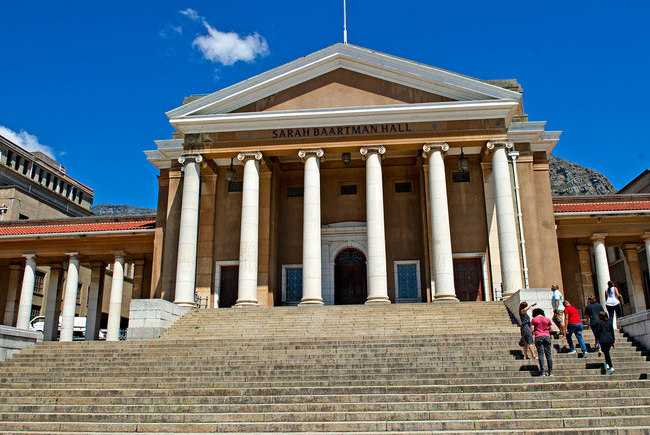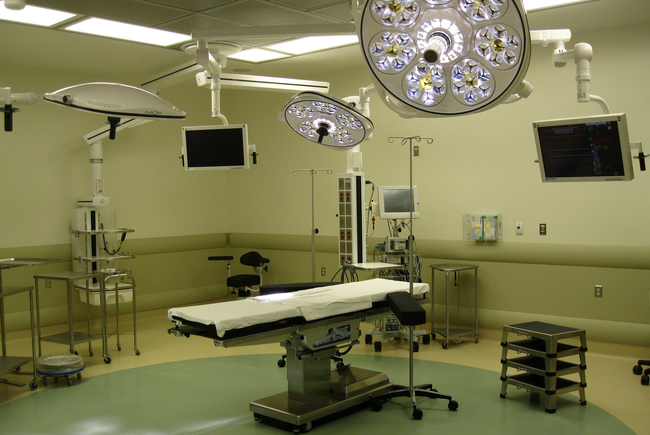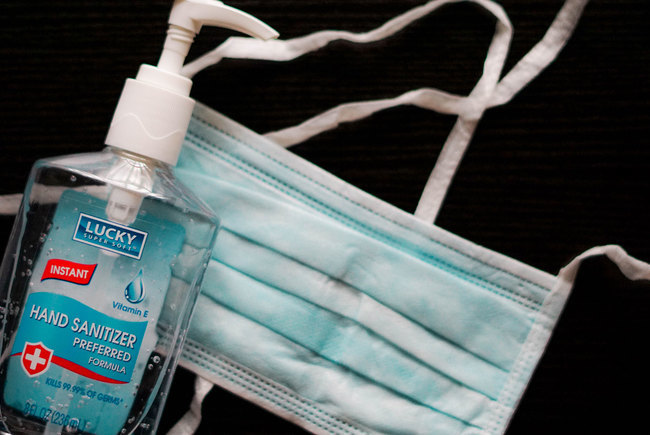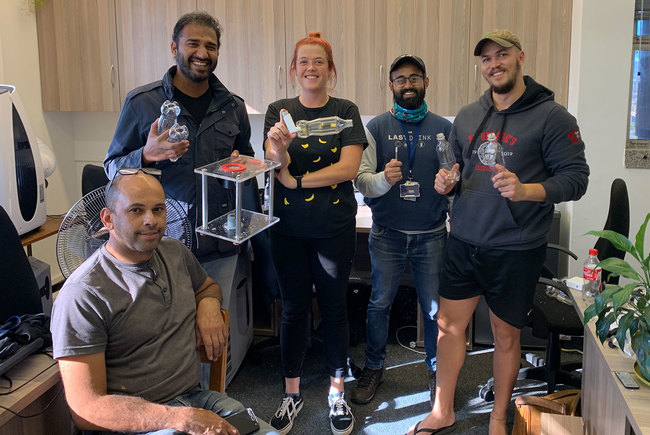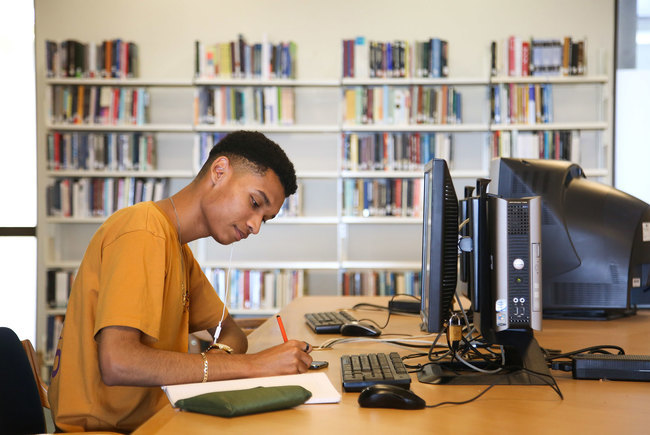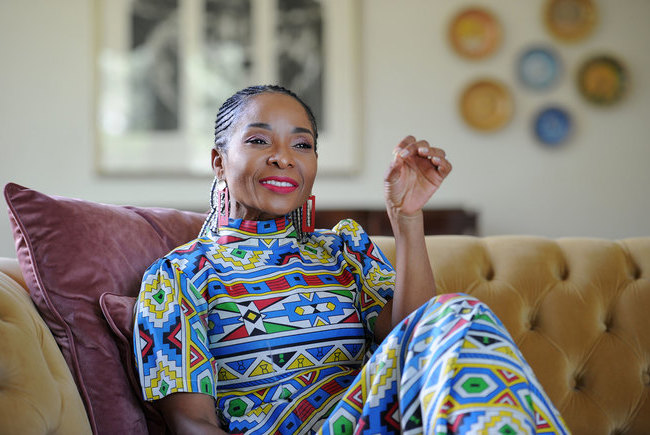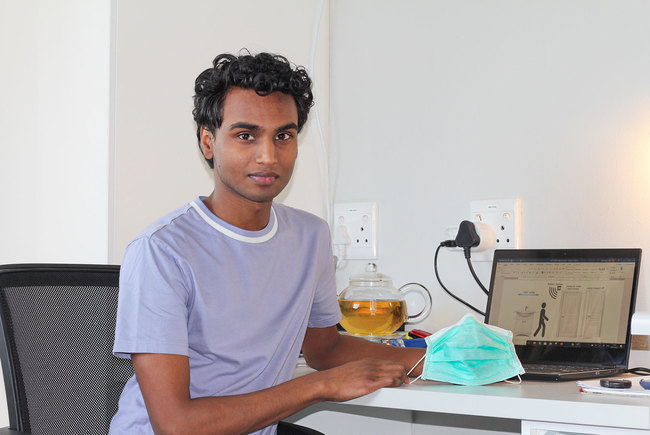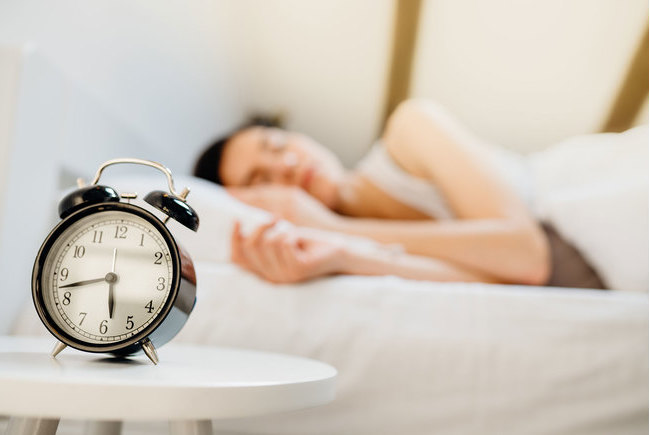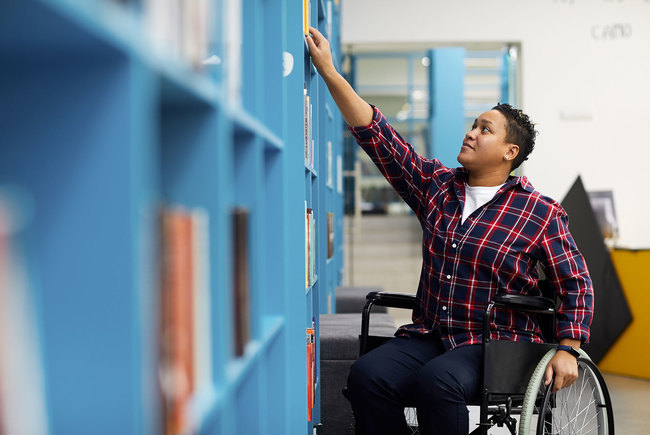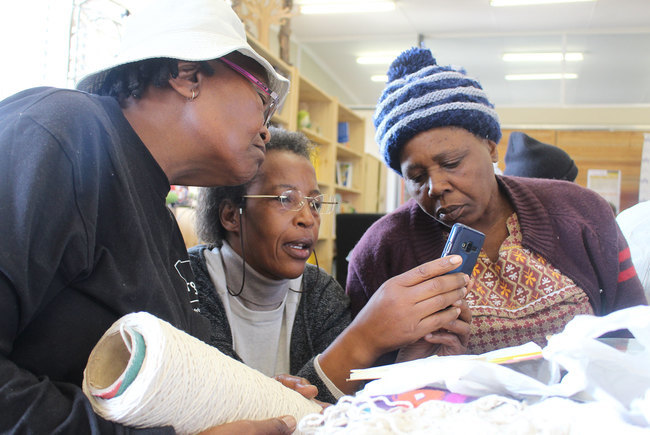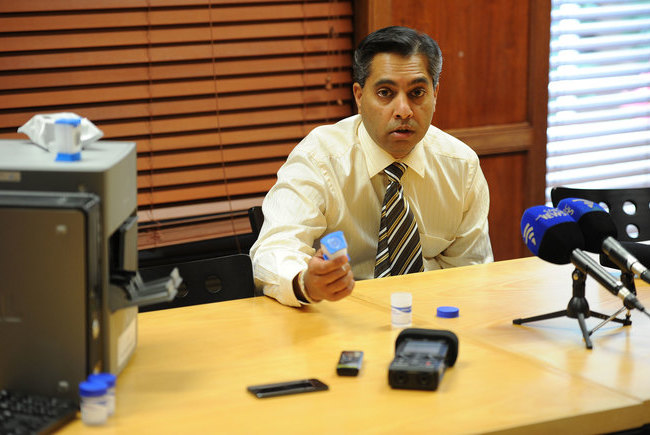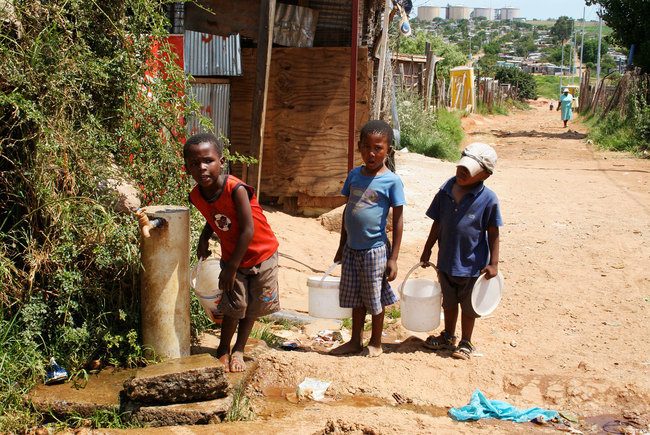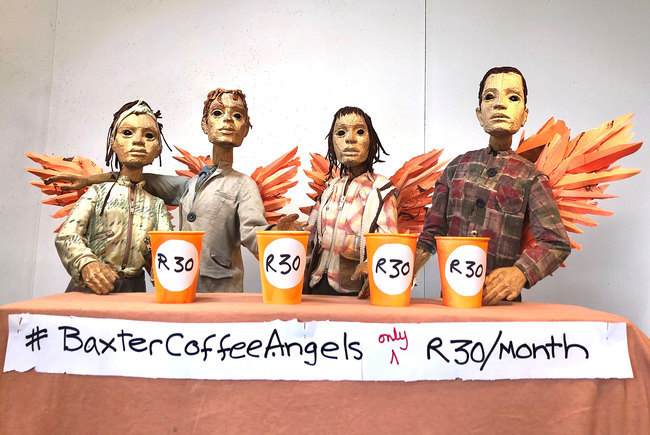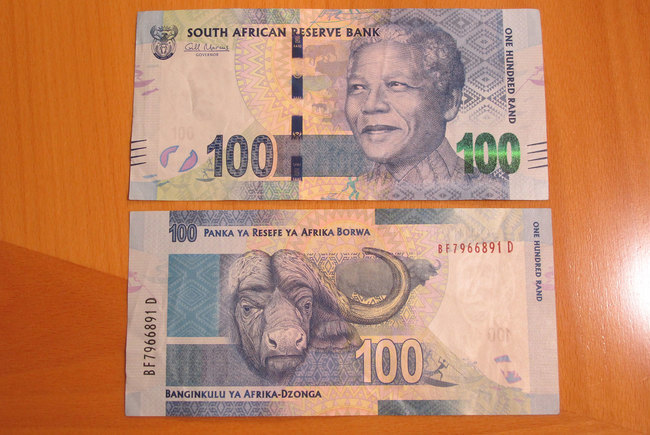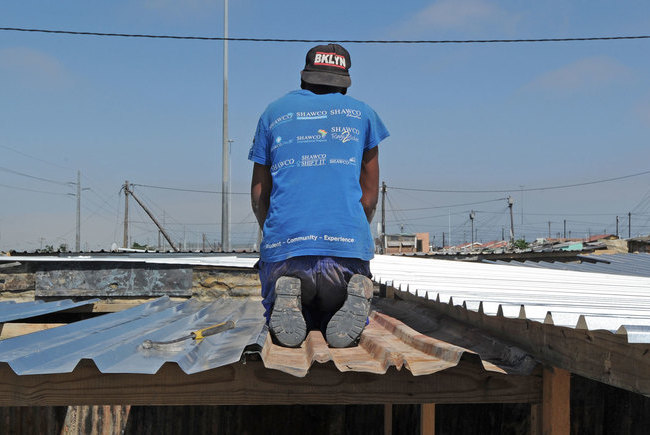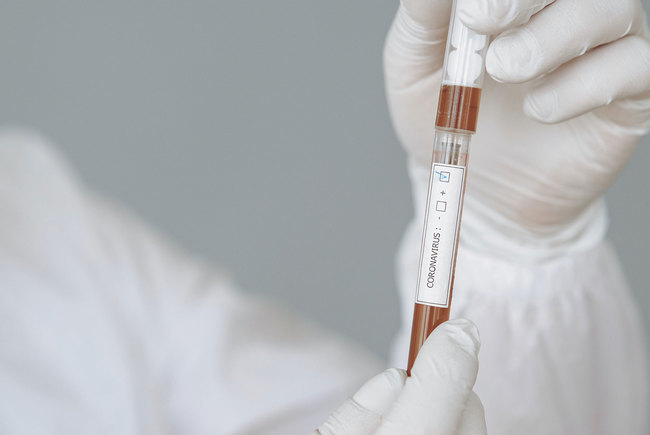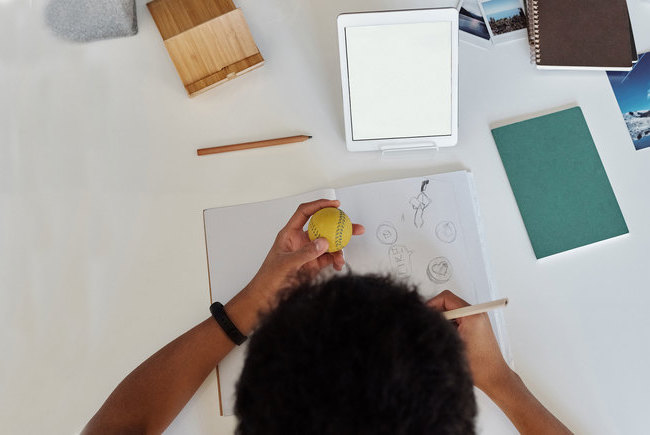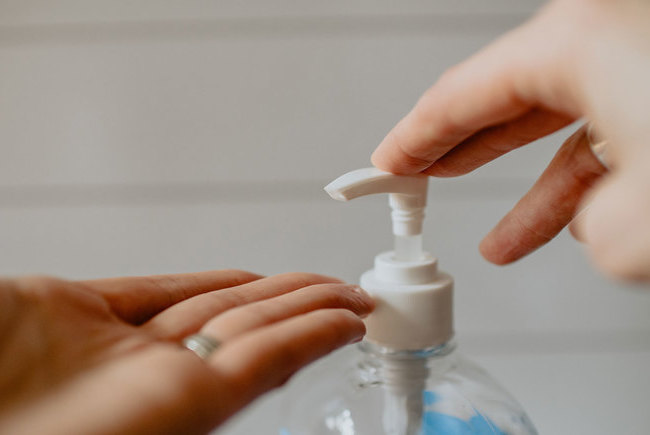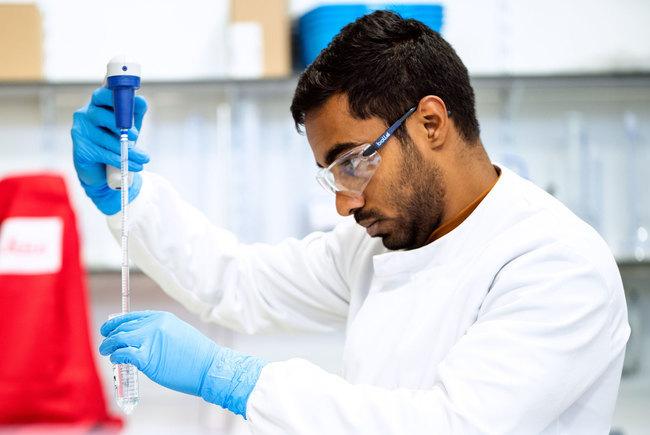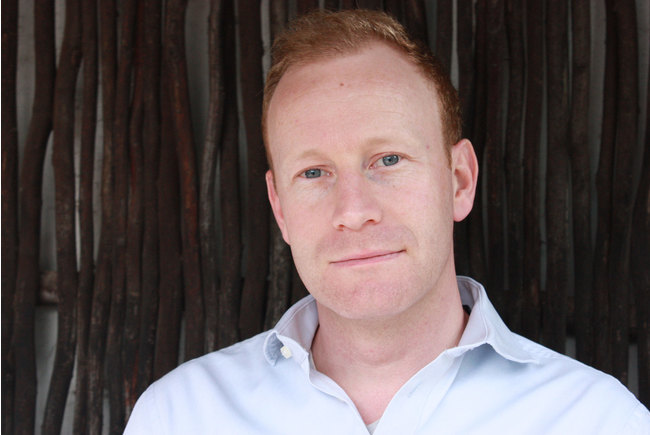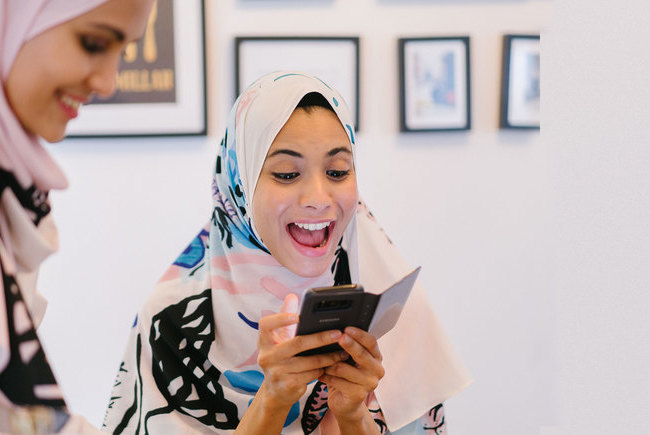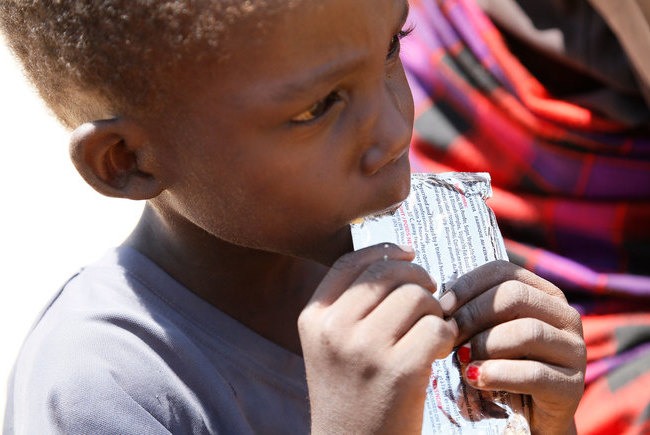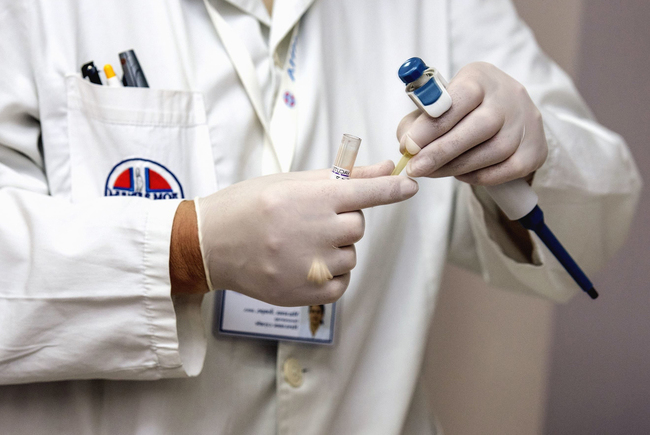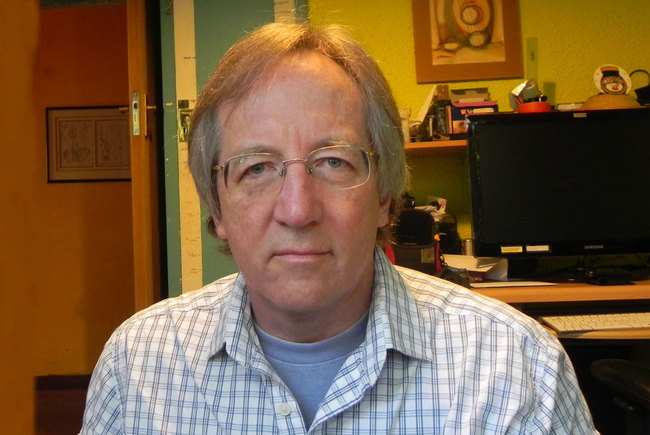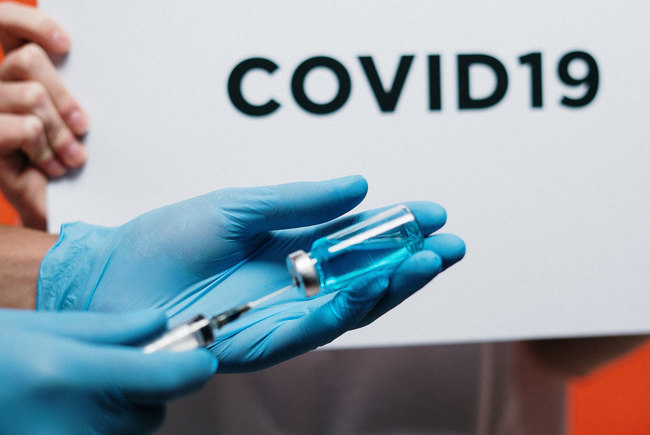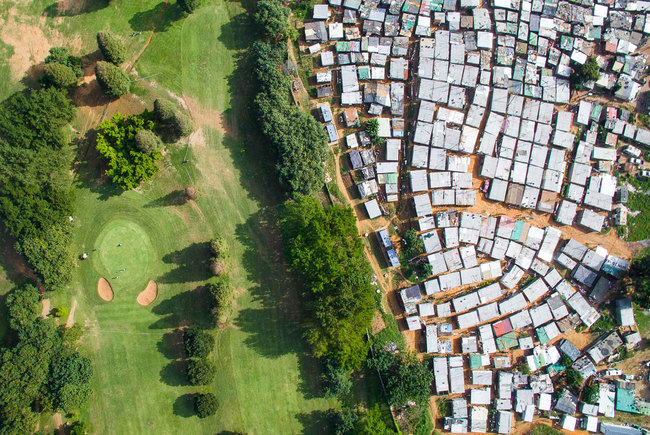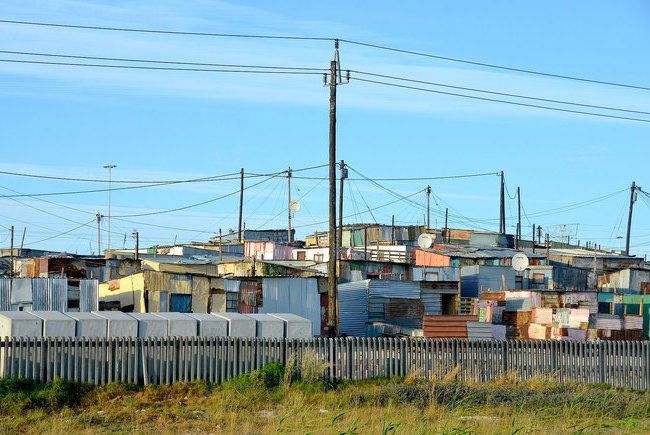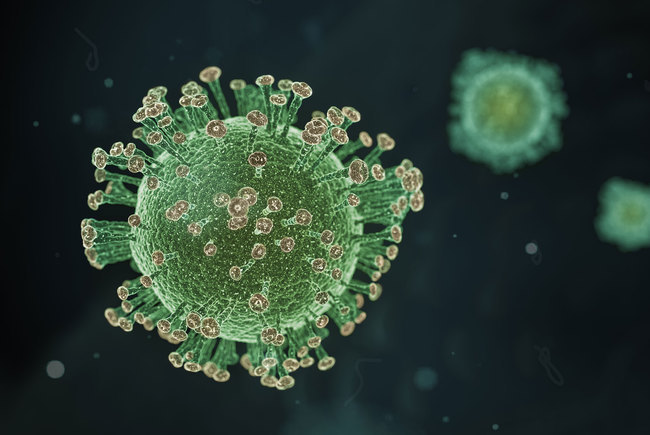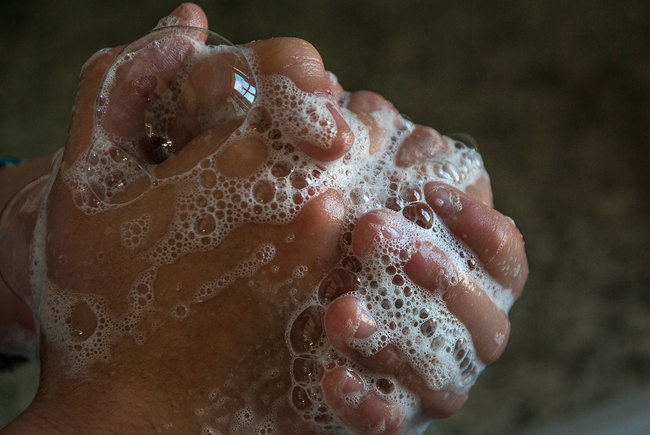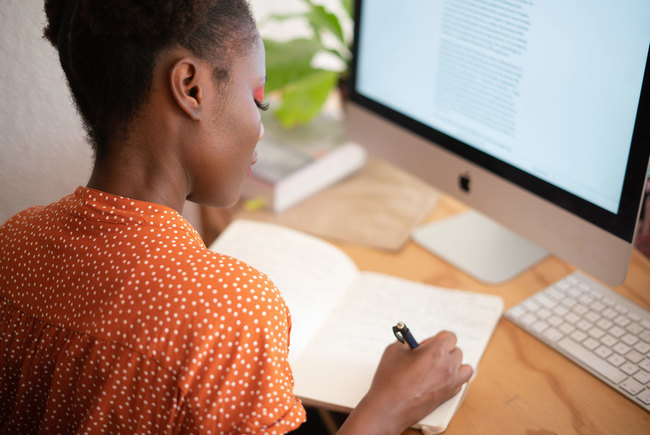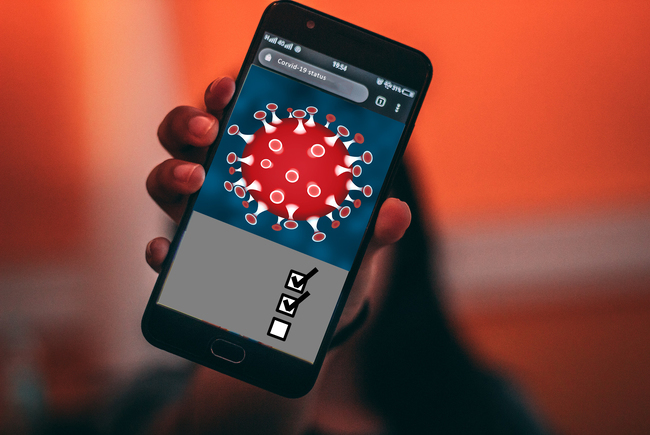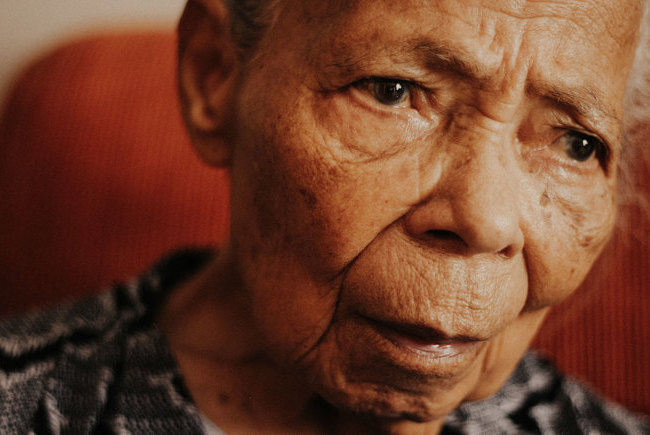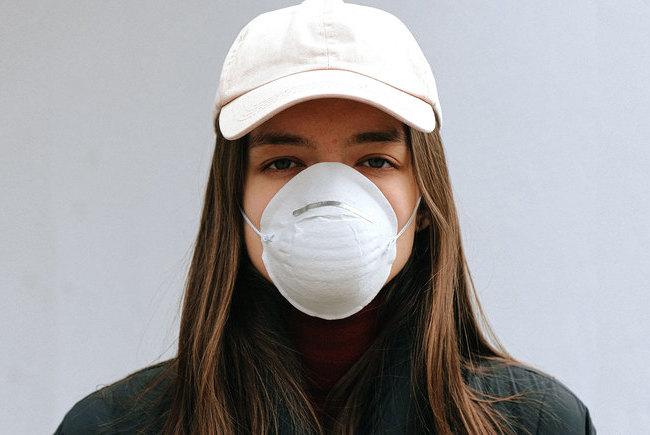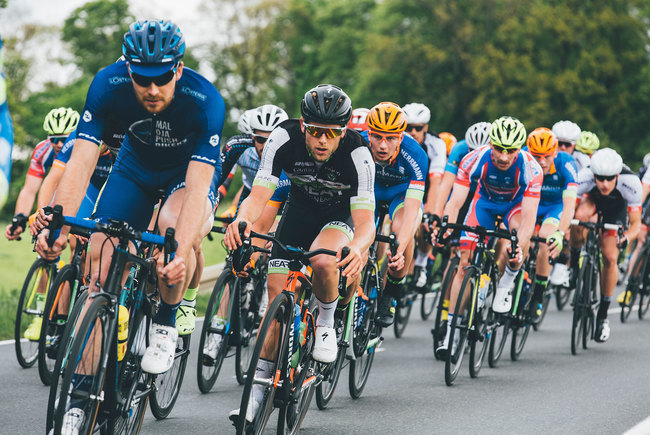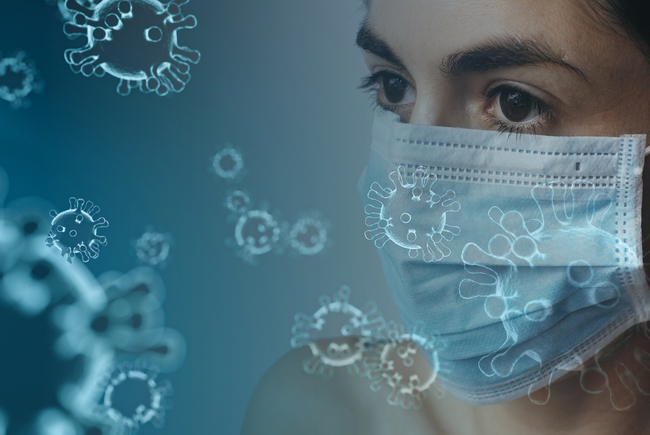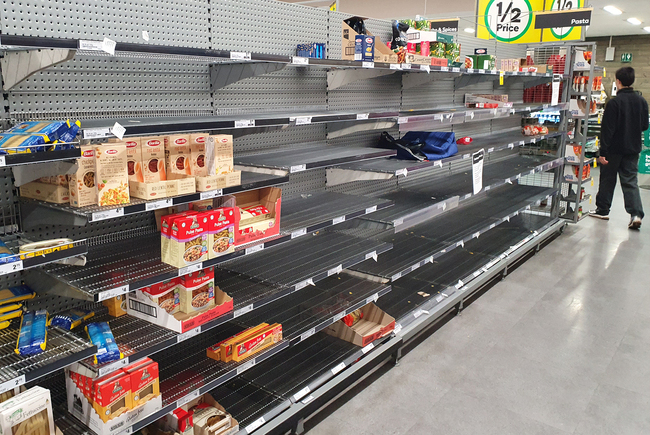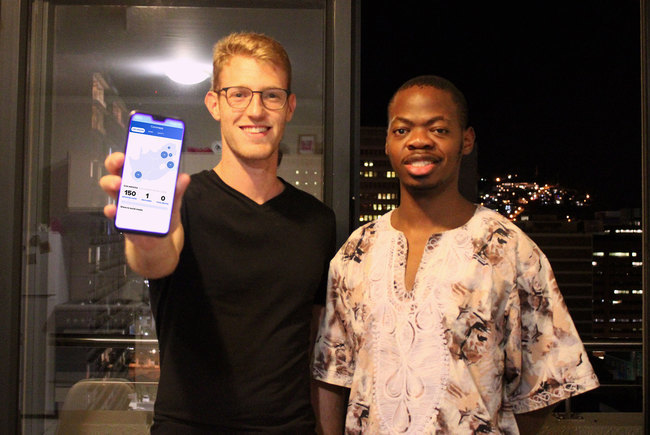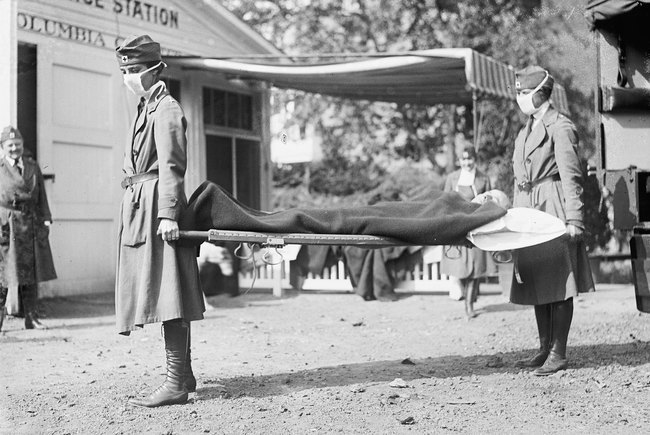‘Overwhelming’ student response to staff COVID-19 hotline
31 March 2020 | Story Helen Swingler. Photos Supplied. Read time 9 min.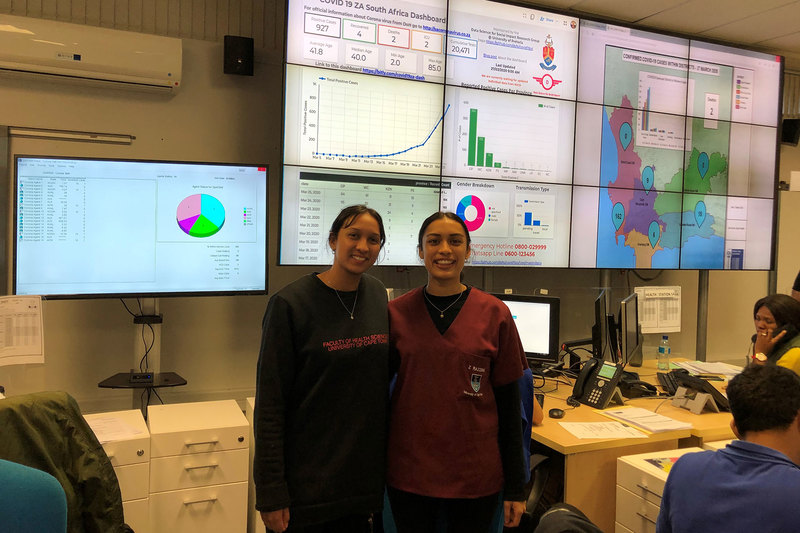
Over 100 student members of the University of Cape Town’s (UCT) Faculty of Health Sciences student societies have volunteered to staff the COVID-19 hotline at the Tygerberg Hospital Disaster Management Centre.
Tygerberg Hospital is one of nine provincial centres identified for the isolation and treatment of patients infected with the coronavirus.
The response from students has been “overwhelming”, said president of the faculty’s UCT Surgical Society, Savannah Verhage, a fifth-year medical student with plans to become a paediatric surgeon who has been coordinating the volunteers from the various faculty student societies. They have been classified as emergency medical personnel and have permits that allow them to travel to and from the centre during the lockdown period.
The UCT Surgical Society is a student-driven society affiliated with the Department of Surgery at Groote Schuur Hospital and has over 400 members. It’s open to all UCT students with an interest in surgery, medical research and leadership.
“Volunteering for the COVID-19 hotline and offering support where it’s needed is our way of assisting our country in a time of crisis,” said Verhage.
Growing need
That need for support has escalated. Since the shutdown at midnight on 26 March, the volunteers have been handling a rising number of hotline calls from the public, reflecting high levels of anxiety.
The students work 12-hour shifts; between 07:00 and 19:00 or between 19:00 and 07:00.
“It has been heart-warming to see how many students are willing to give up their time to volunteer for 12-hour shifts.”
The call for UCT Surgical Society volunteers to staff the COVID-19 hotline came from UCT’s Professor Lee Wallis of the Disaster Management Centre. Students were then trained how to take a thorough medical history over the phone using a COVID-19-focused questionnaire and, if required, to refer callers to the appropriate level of care for further management.
“We were honoured to be given the opportunity to play our part in serving the community,” said Verhage. “At first it was only members of the Surgical Society that were involved; however, as the number of COVID-19 cases started to climb, I contacted other societies on our [health sciences] campus and got their student members on board too.
“It has been heart-warming to see how many students are willing to give up their time to volunteer for 12-hour shifts during this trying time.”
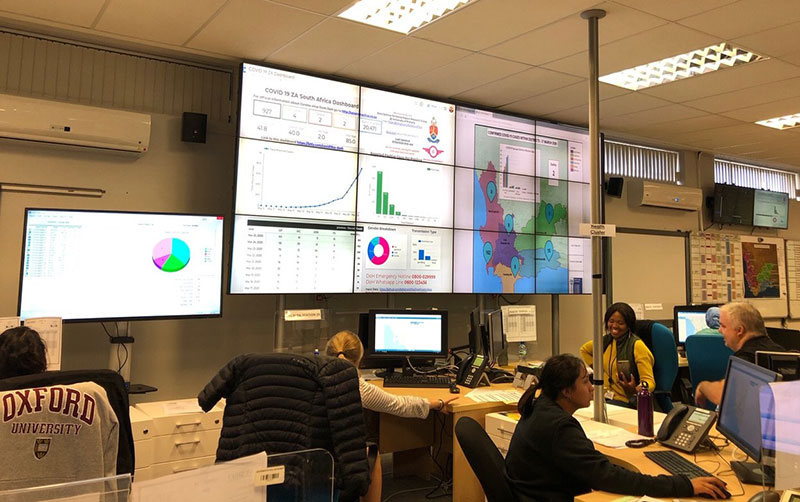
More volunteers needed
Verhage anticipates that in the weeks to come the Disaster Management Centre will require more volunteers to assist as the pandemic reaches its peak.
Her task is not a small one. As head of this project from the UCT students’ side, she liaises with the Disaster Management team daily to find out how many student volunteers they require for the shifts and then ensures that they have the numbers to staff the hotline.
“My hope is that … we will also become a beacon of hope to the rest of the world.”
“I’m responsible for recruiting volunteers, communicating any updates or announcements with the volunteers, drawing up the shift rosters, organising the travel permits during the lockdown period and liaising with the doctors on a daily basis to ensure that we are meeting the call centre’s needs and rendering assistance and support where needed.”
The effects of COVID-19 on society will be far reaching, but Verhage praised government for “quickly and radically” reacting to the COVID-19 crisis in South Africa.
“My hope is that these attributes will not only hold us in good stead going forward and help us to minimise the number of fatal infections in our country but that we will also become a beacon of hope to the rest of the world by demonstrating to them how a situation like this can be appropriately managed.”
Surreal experience
Nonetheless, it’s been a surreal experience, she said.
“No one ever expects to be involved in a pandemic of this magnitude during their own lifetime. However, a crisis like this serves to remind us of just how vital proper preparation and early intervention is if the crisis is to be averted. It also demonstrates how every person in South Africa has an important and essential role to play if we are to effectively beat COVID-19.”
“A crisis like this serves to remind us of just how vital proper preparation and early intervention is.”
Volunteer Isabel Kim is doing a BMedSci (honours), an intercalated programme that will see her return to the fourth-year MBChB programme next year. Staffing the hotline isn’t only about taking phone calls and answering questions, but also about being able to talk people through their fears.
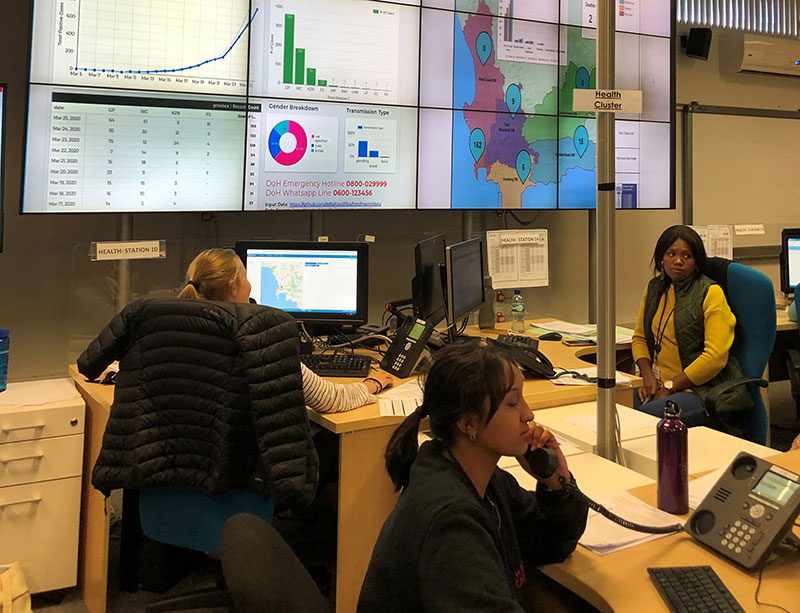
For Kim, the most challenging part is knowing how many are at risk, especially the large numbers of immunocompromised people living with HIV and tuberculosis, and in poverty – and the injustices of access to quality healthcare.
“We know that the majority can’t access private care,” she said.
“This is a very scary time. It’s something no one saw coming or could prepare for. It’s also bringing a lot of uncertainty about [our] academic years, the future of many countries and the economic state globally.”
But there are also positives, and the most rewarding part of the work is putting people at ease.
“People have been connecting with their neighbours. It’s given people time to reflect on their lives and get some quality time with family members.”
Her message is, “Don’t lose hope.”
“China and Korea are examples that there is hope at the end. Play your part. Stay at home. And keep those on the workforce of essential services in your heart.”
First-hand learning
Fourth-year student Zaahidah Razzak has welcomed the opportunity to play a meaningful role in the crisis, contributing to a team that’s tackling what will become one of the world’s biggest health crises and lessening the strain on the healthcare sector.
“It’s also an opportunity to reach the public and educate them with facts, provide reassurance and help.
“In South Africa, we struggle with issues of poor health education and [a large number of people] don’t have access to the internet and, as a result, little access to information. We get dozens of calls a day [expressing] fears based on misinformation … and people needing reassurance that they or their friends and family don’t have COVID-19 symptoms.”
The 12-hour shifts can be taxing, with not much break time. Each volunteer takes between 20 and 40 calls a shift – up to 500 calls to the centre every shift – and dealing with some callers requires resolve.
Having been at the centre from the start, Razzak has gained invaluable experience of protocol and policy changes.
“Over the three weeks I’ve volunteered, I’ve learnt first-hand how the COVID-19 case definition has evolved.”
Committed to help
First-year student and volunteer Camryn Ferns said she’d signed up for the hotline as soon as she received the call from the Surgical Society.
“[Helping] is what I’ve committed to doing for the rest of my life. After the president’s first speech, I felt useless. I didn’t feel I was contributing as much as I would have liked to during this time. I was witnessing a worldwide apocalypse unfold and felt like there was nothing I could do to help. So, when we got the email to volunteer, I jumped at the opportunity.
“Although it’s not on the frontline, even comforting panicked callers is satisfying. The most rewarding part of the work is when I’m able to confidently reassure a patient that all will be okay.”
COVID-19 has changed her outlook and perhaps even her future career, she said.
“I have seen myself going into research around infectious diseases and controlling disasters. COVID-19 has seriously accelerated my desire. I’m privileged to be part of a community that is trying to make a difference, and I hope that I’m able to share this experience with my own family one day.”
National: 080 002 9999
Provincial: 021 928 4102
Email address: doh.dismed@westerncape.gov.za
 This work is licensed under a Creative Commons Attribution-NoDerivatives 4.0 International License.
This work is licensed under a Creative Commons Attribution-NoDerivatives 4.0 International License.
Please view the republishing articles page for more information.
Coronavirus Disease 2019 updates
COVID-19 is a global pandemic that caused President Cyril Ramaphosa to declare a national disaster in South Africa on 15 March 2020 and to implement a national lockdown from 26 March.
UCT is taking the threat of infection in our university community extremely seriously, and this page will be updated regularly with the latest COVID-19 information. Please note that the information on this page is subject to change depending on current lockdown regulations.
Frequently asked questions
Daily updates
Campus communications
2020
Resources
Video messages from the Department of Medicine
Getting credible, evidence-based, accessible information and recommendations relating to COVID-19
The Department of Medicine at the University of Cape Town and Groote Schuur Hospital, are producing educational video material for use on digital platforms and in multiple languages. The information contained in these videos is authenticated and endorsed by the team of experts based in the Department of Medicine. Many of the recommendations are based on current best evidence and are aligned to provincial, national and international guidelines. For more information on UCT’s Department of Medicine, please visit the website.
To watch more videos like these, visit the Department of Medicine’s YouTube channel.
Useful information from UCT
External resources
News and opinions
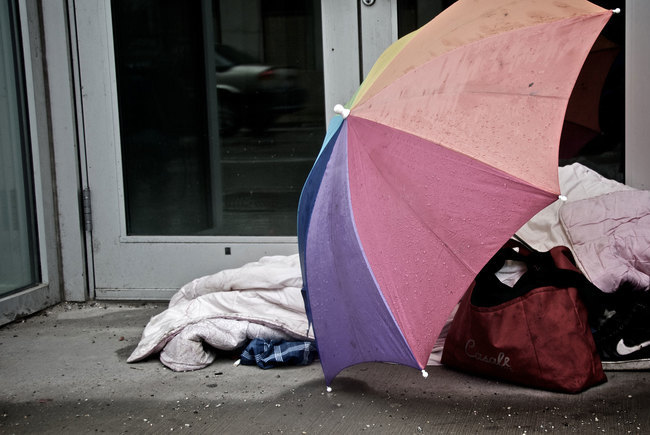
As the COVID-19 crisis drags on and evolves, civil society groups are responding to growing and diversifying needs – just when access to resources is becoming more insecure, writes UCT’s Prof Ralph Hamann.
03 Jul 2020 - 6 min read Republished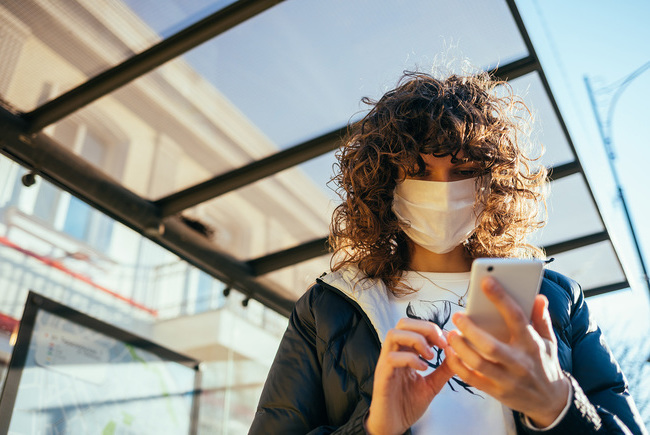
The Covid-19 crisis has reinforced the global consequences of fragmented, inadequate and inequitable healthcare systems and the damage caused by hesitant and poorly communicated responses.
24 Jun 2020 - >10 min read Opinion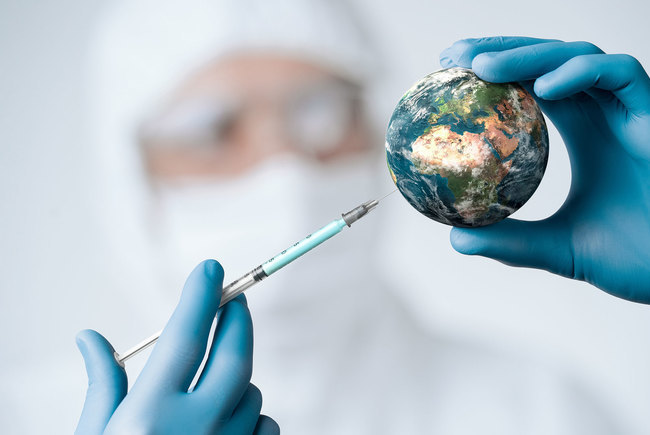
Our scientists must not practise in isolation, but be encouraged to be creative and increase our knowledge of the needs of developing economies, write Professor Mamokgethi Phakeng, vice-chancellor of UCT, and Professor Thokozani Majozi from the University of the Witwatersrand.
09 Jun 2020 - 6 min read Republished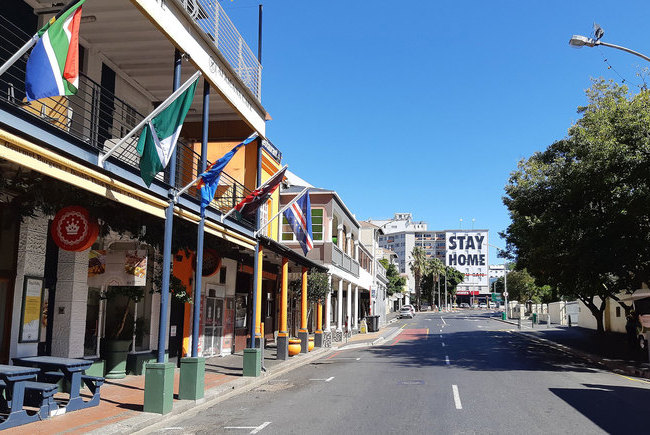
South Africa has been recognised globally for its success in flattening the curve, which came as a result of President Ramaphosa responding quickly to the crisis, writes Prof Alan Hirsch.
28 Apr 2020 - 6 min read RepublishedStatements and media releases
Media releases
Read more
Statements from Government
In an email to the UCT community, Vice-Chancellor Professor Mamokgethi Phakeng said:
“COVID-19, caused by the virus SARS-CoV-2, is a rapidly changing epidemic. [...] Information [...] will be updated as and when new information becomes available.”
We are continuing to monitor the situation and we will be updating the UCT community regularly – as and when there are further updates. If you are concerned or need more information, students can contact the Student Wellness Service on 021 650 5620 or 021 650 1271 (after hours), while staff can contact 021 650 5685.








